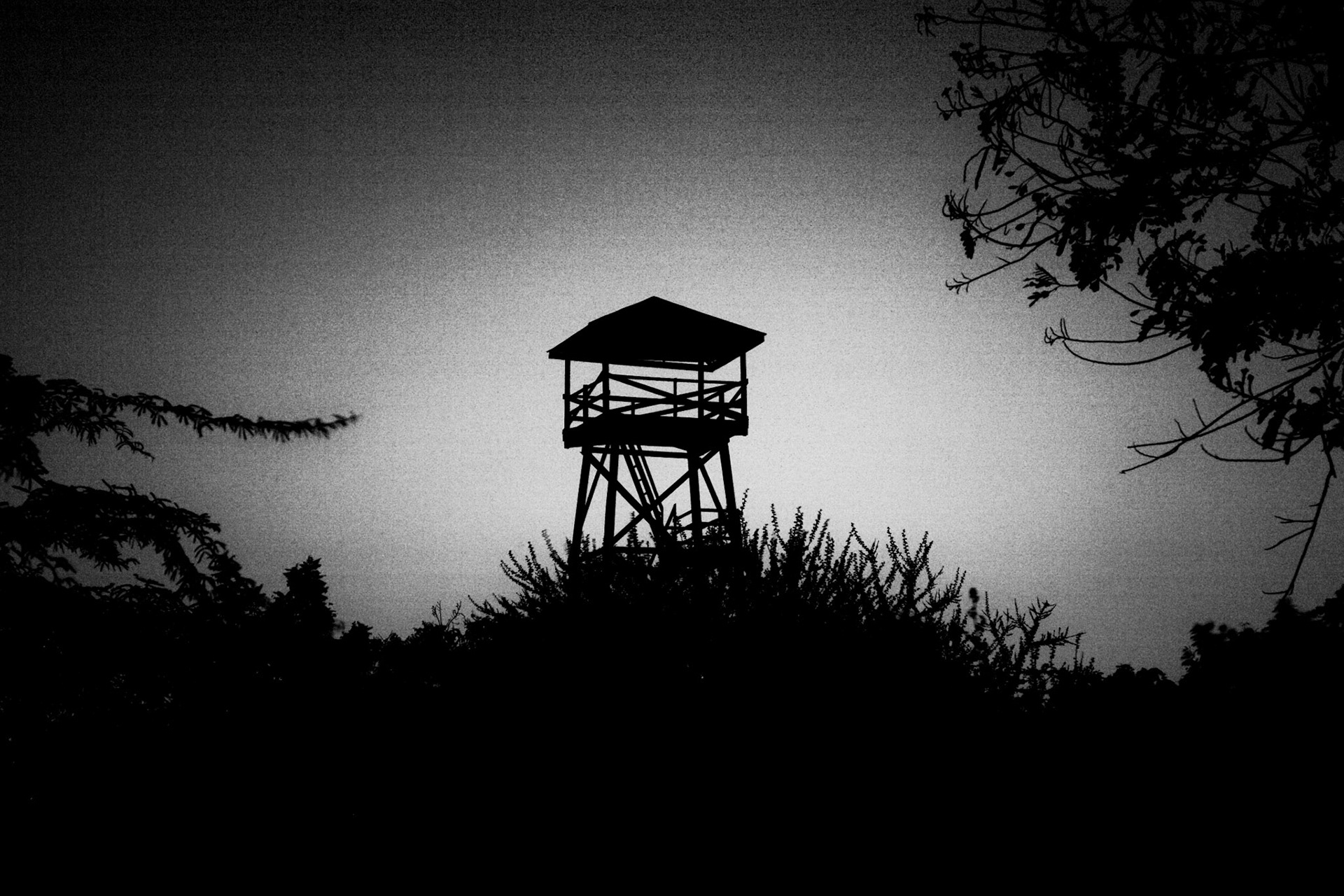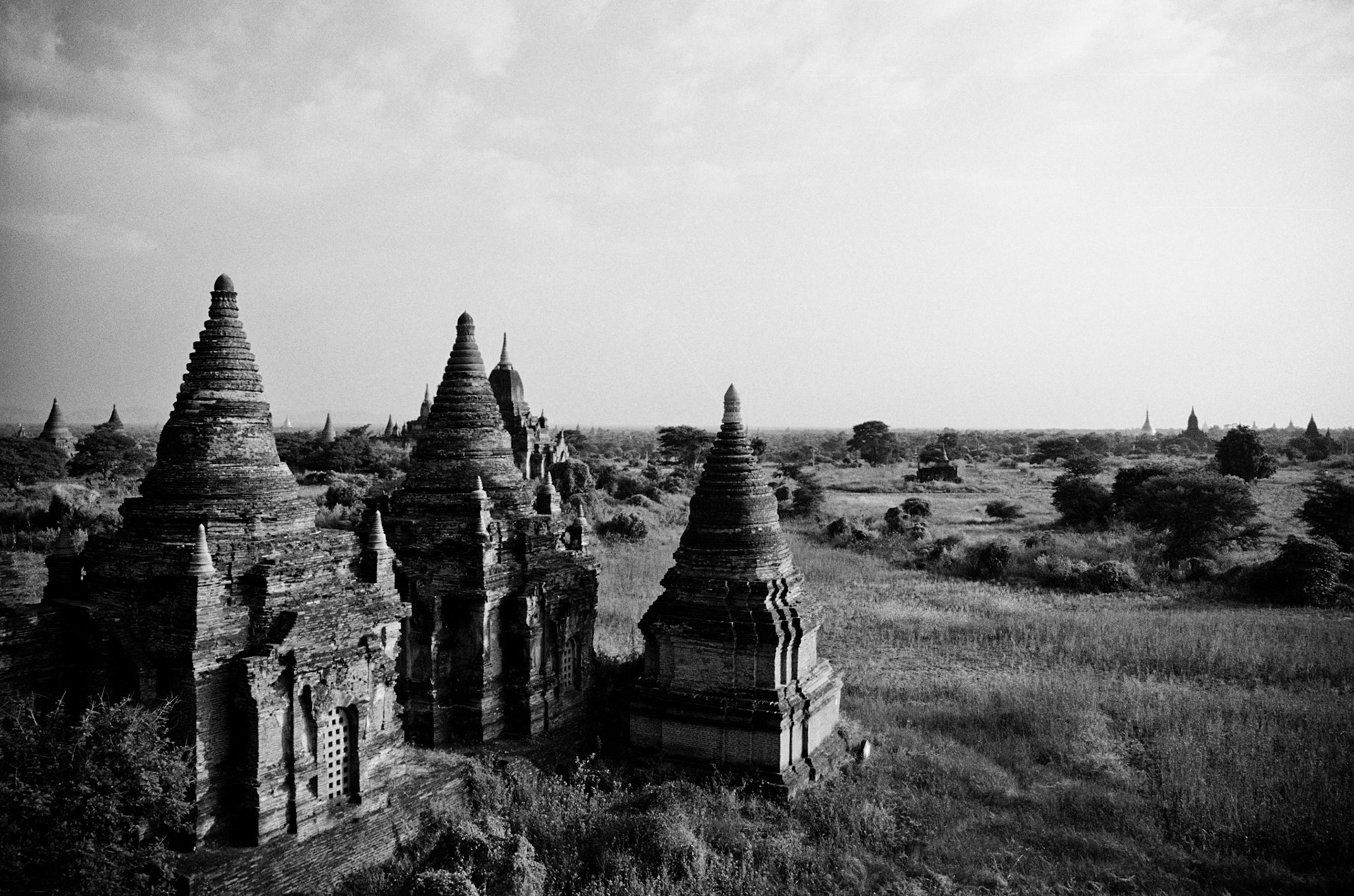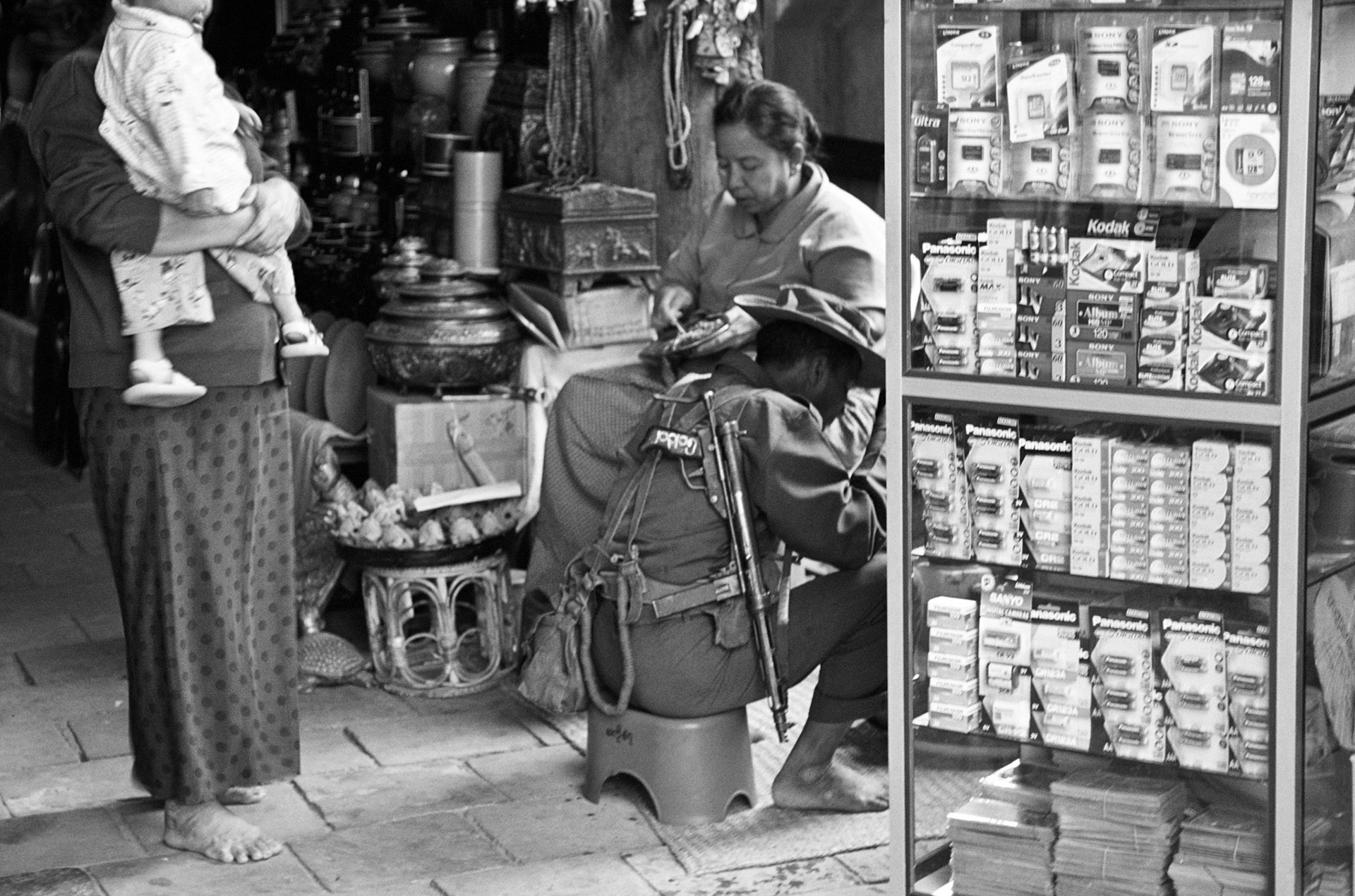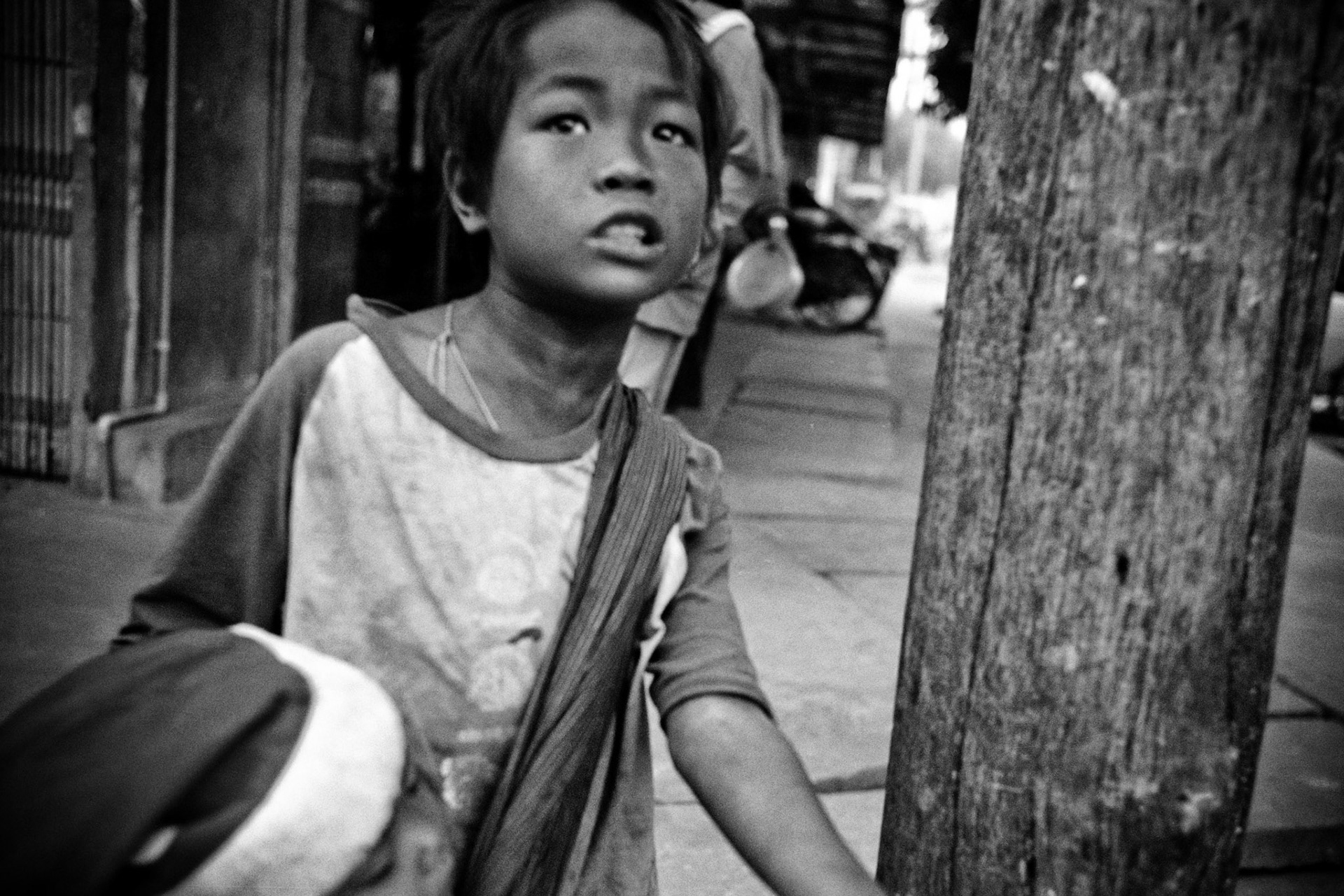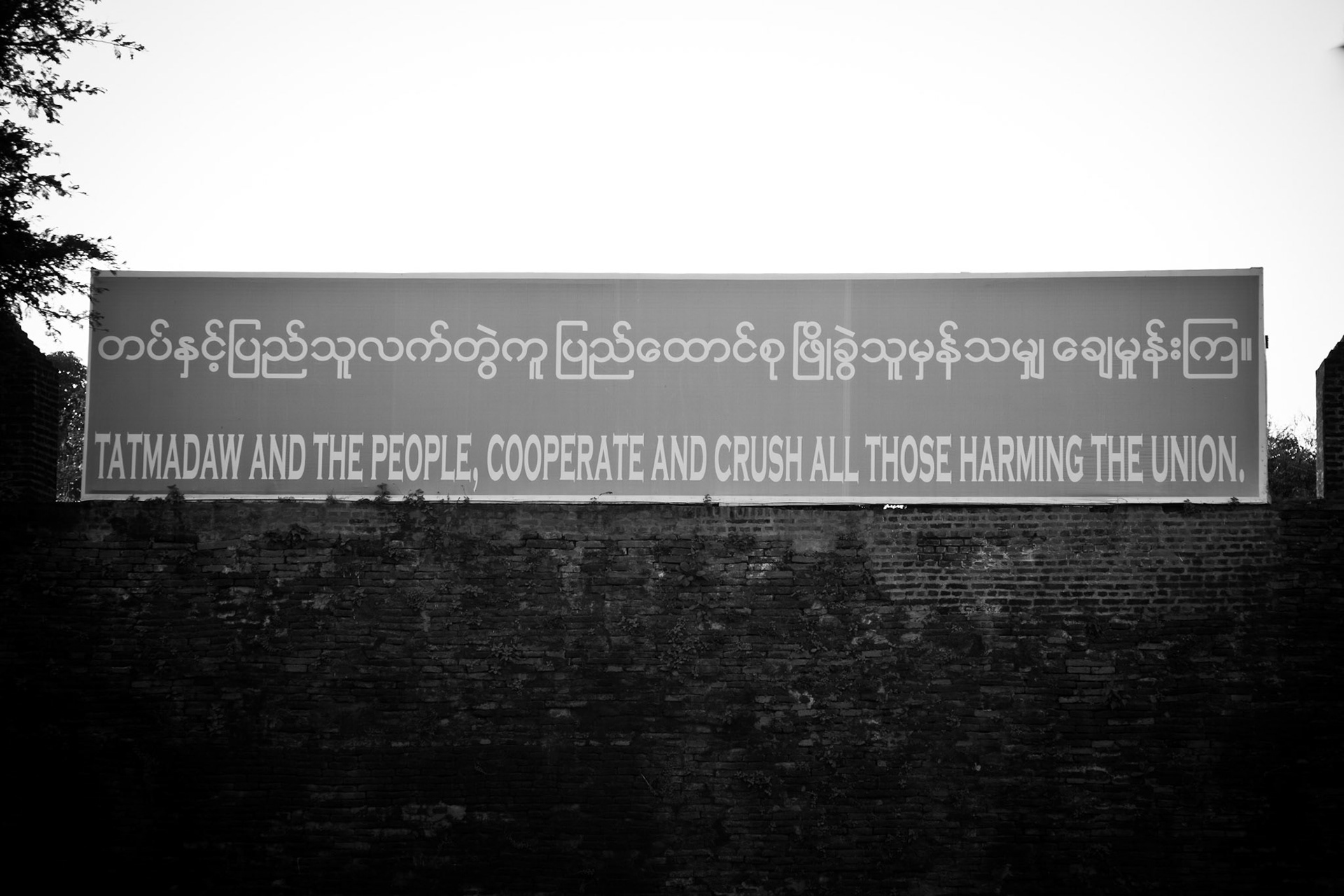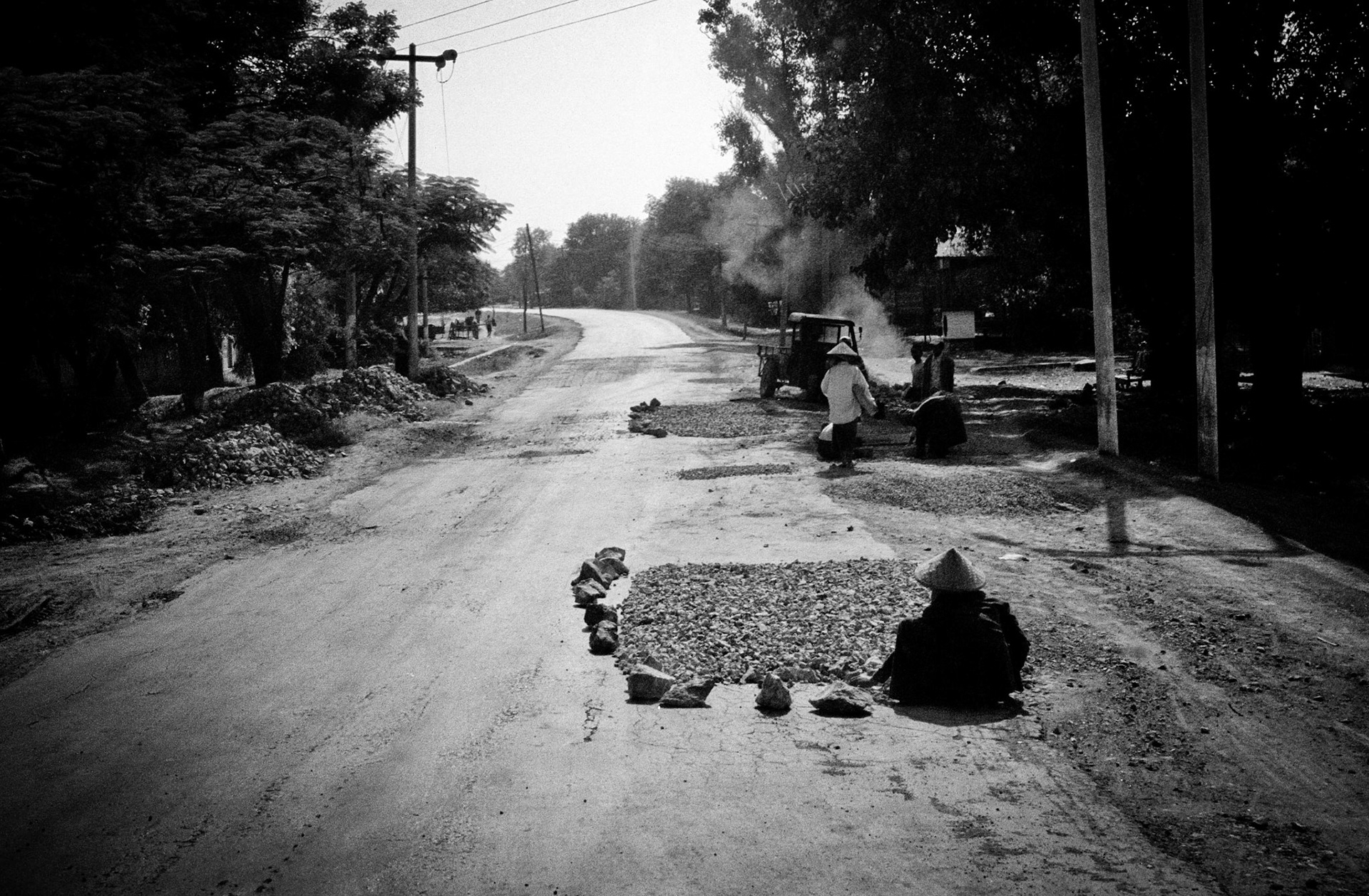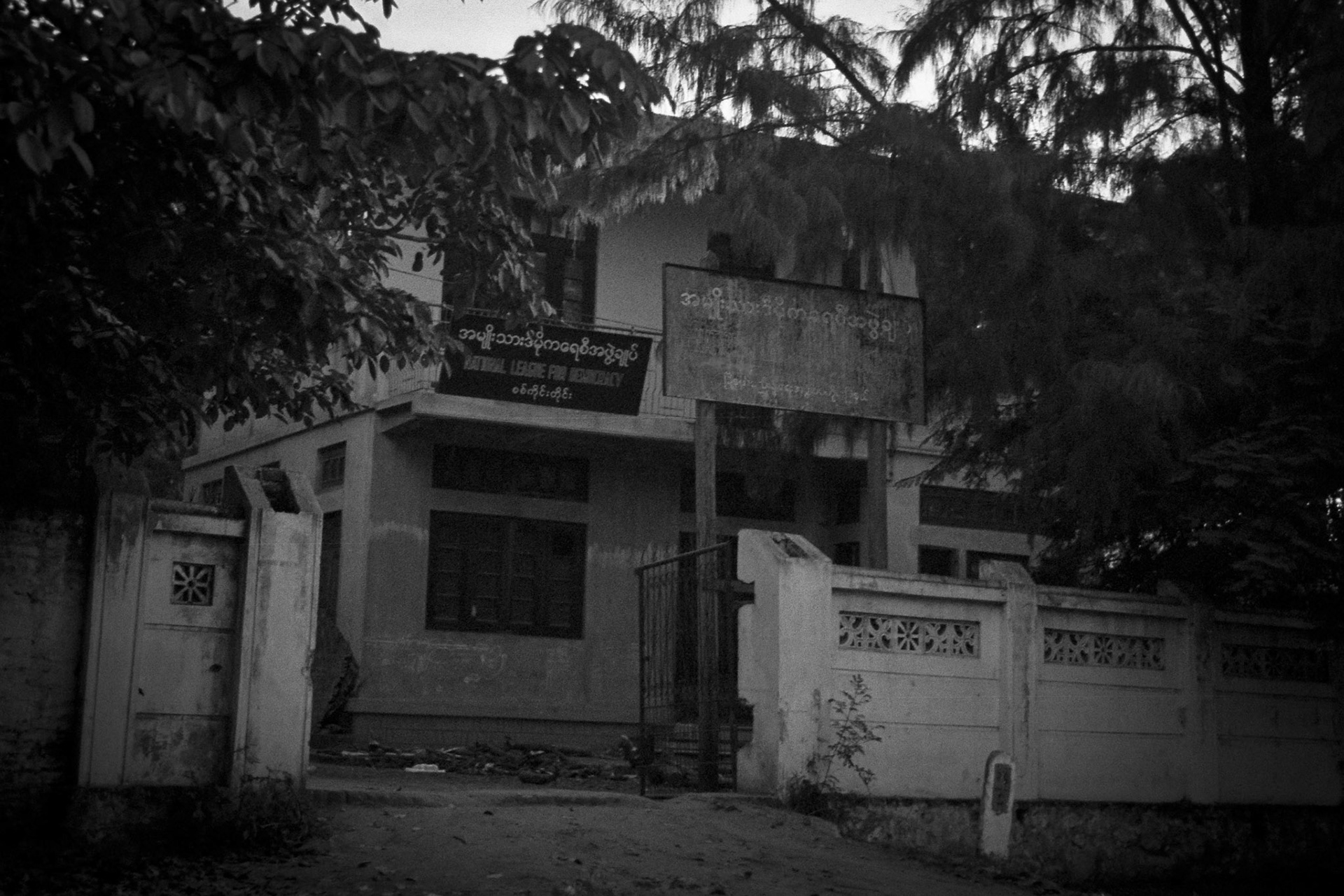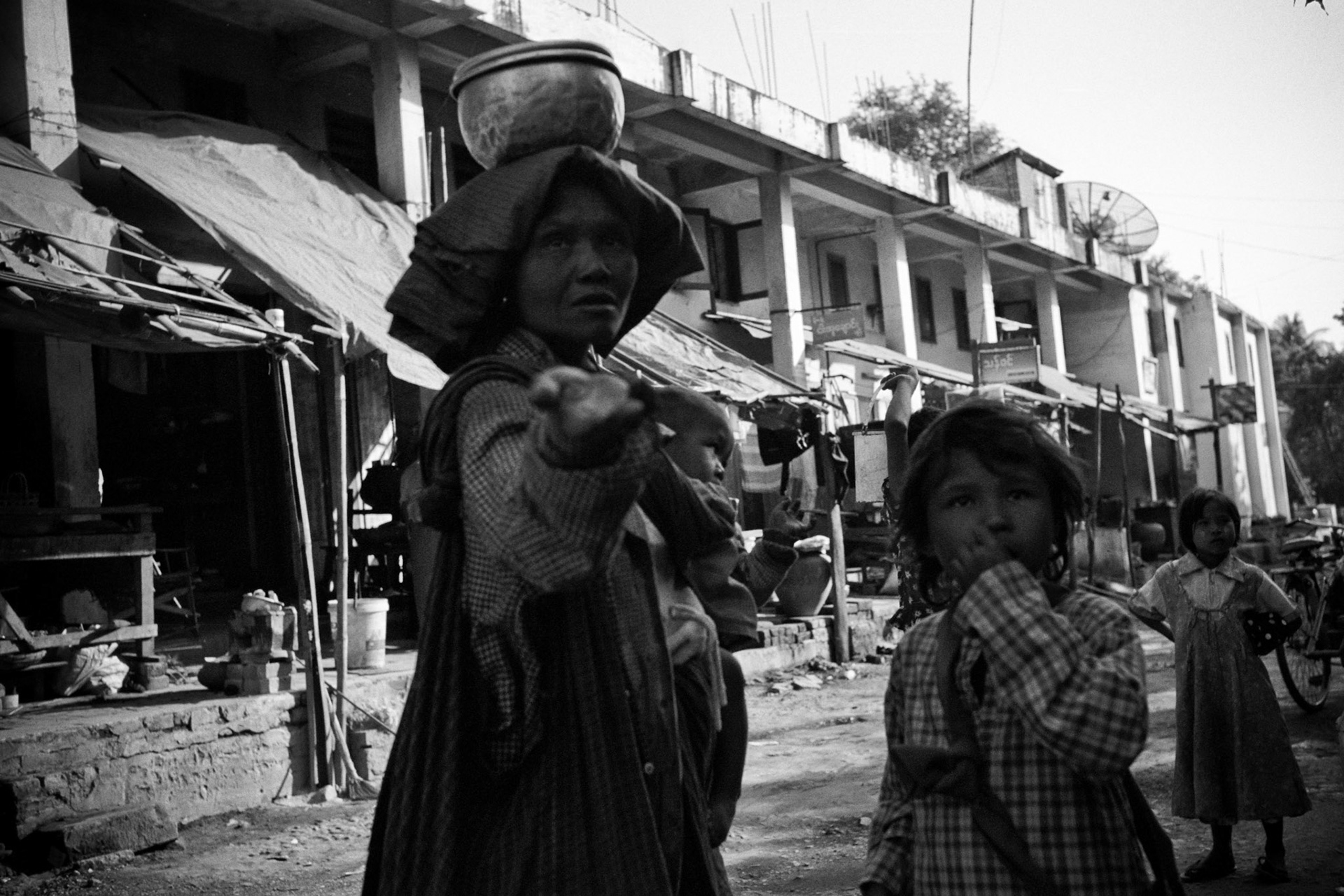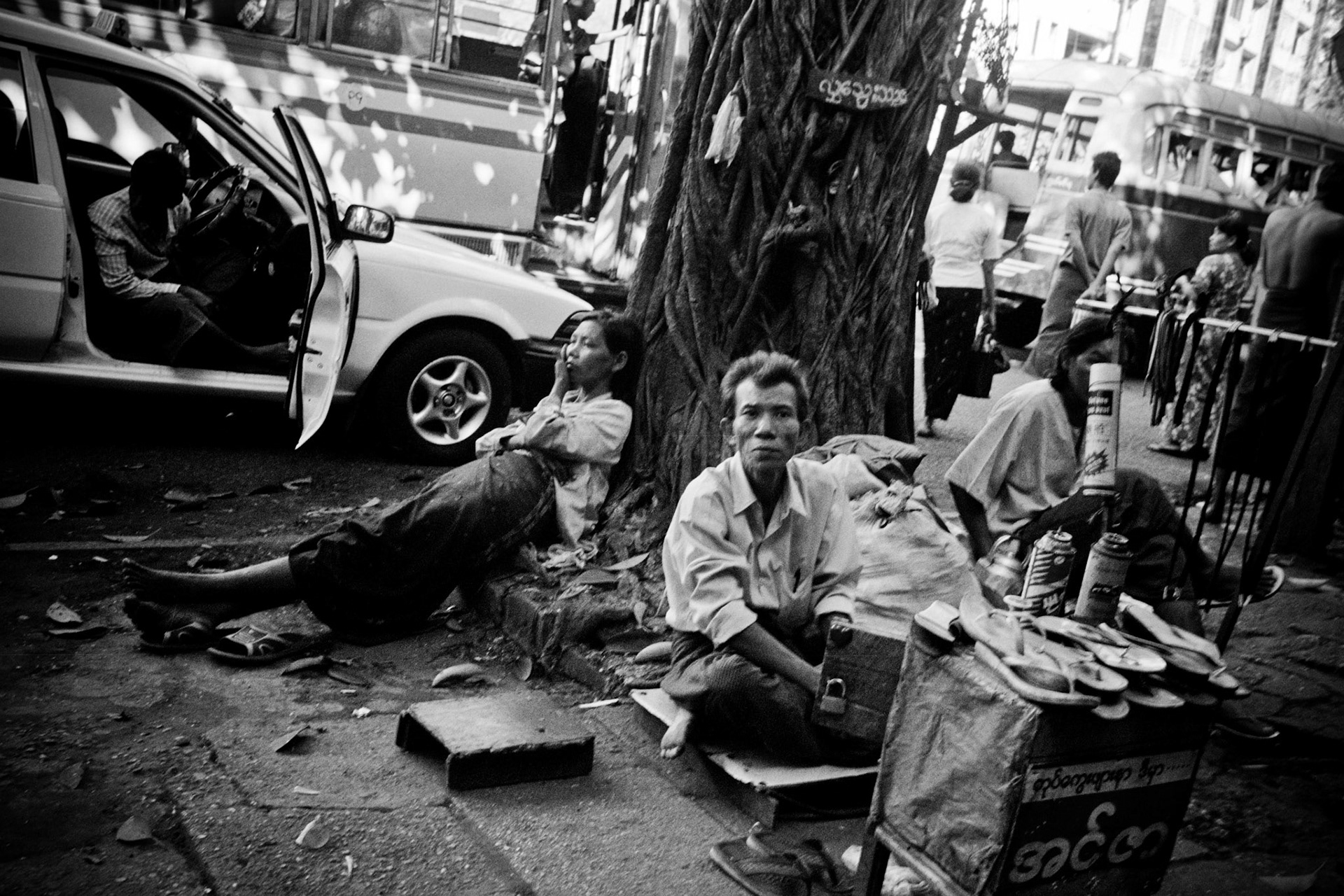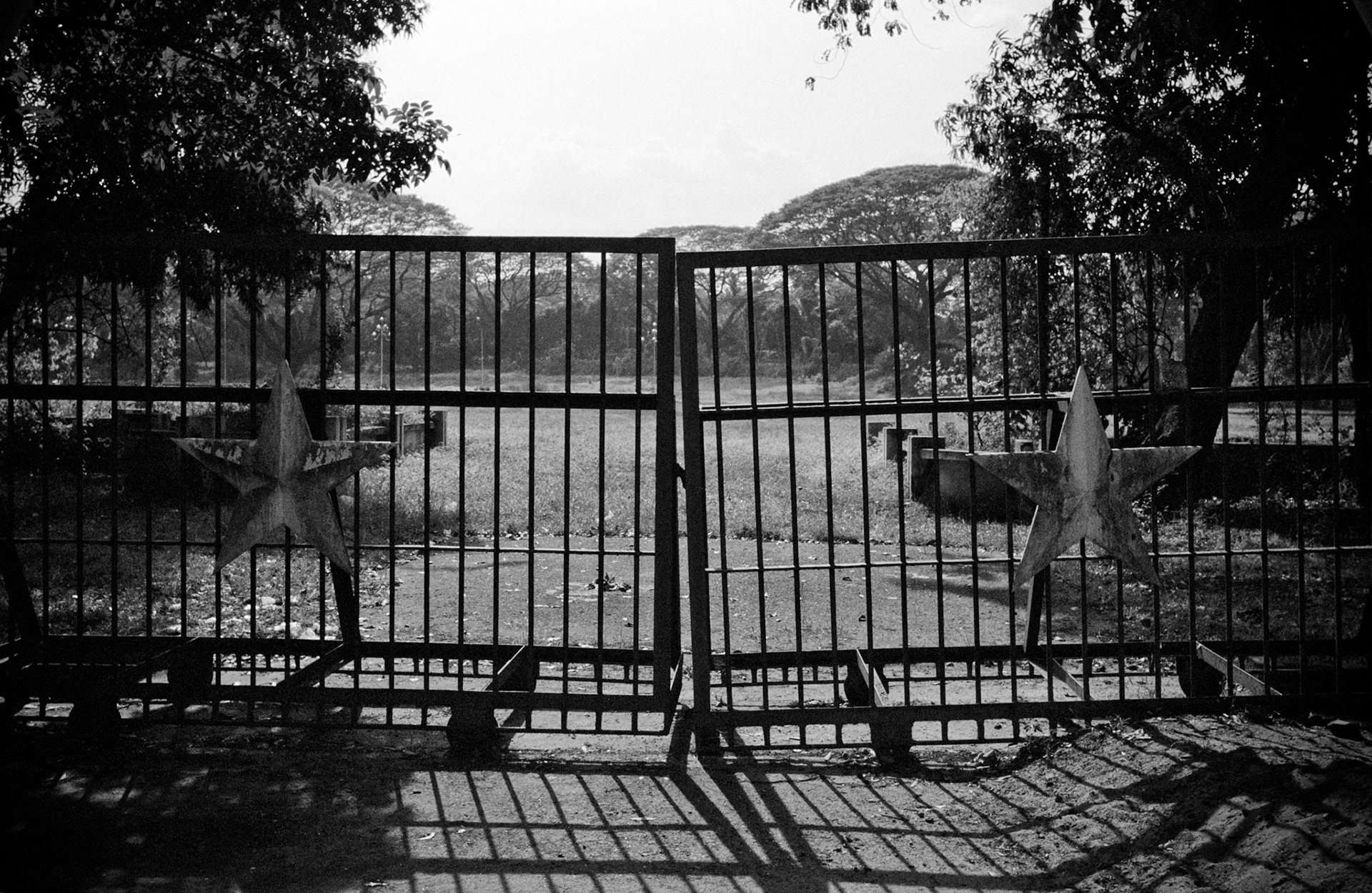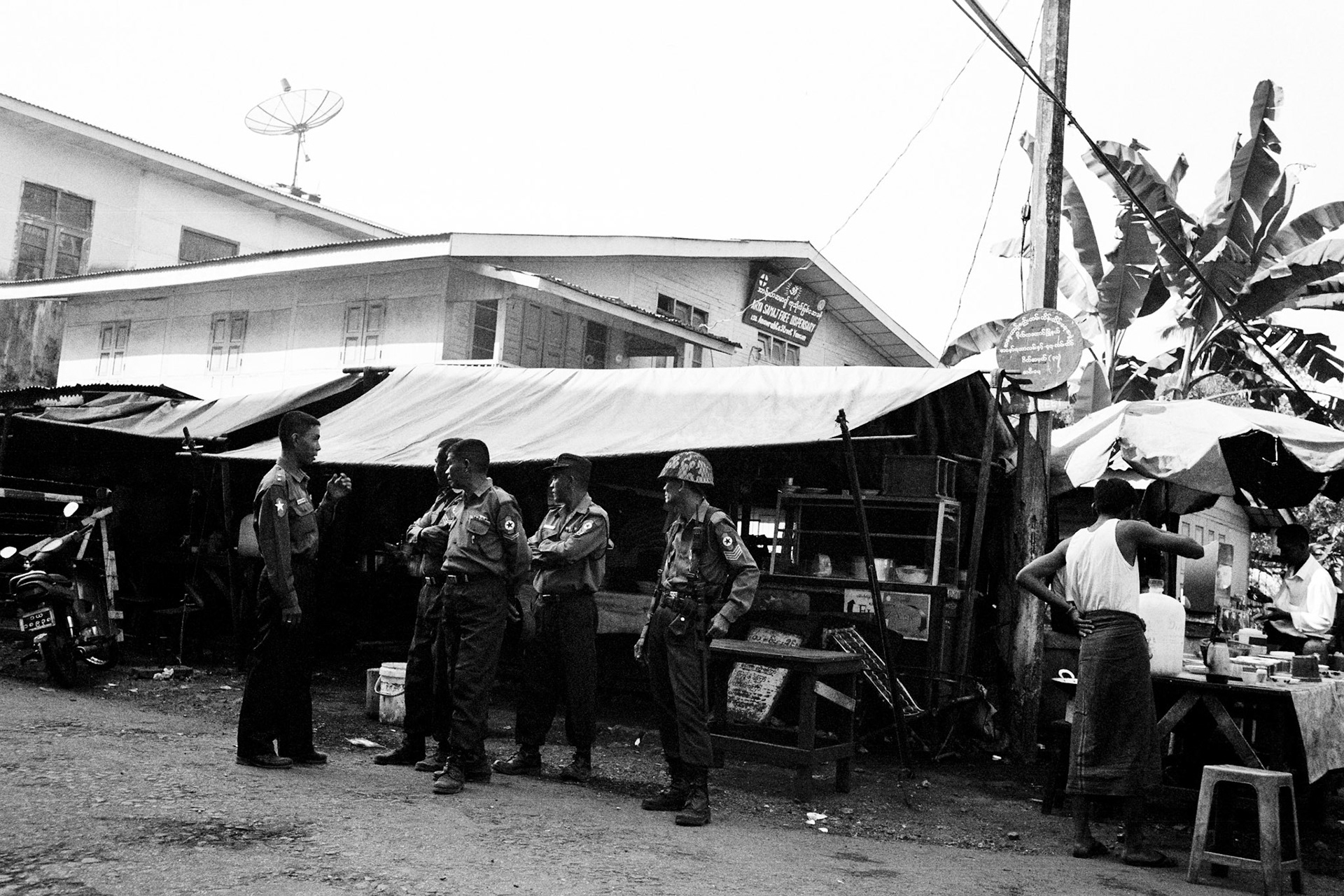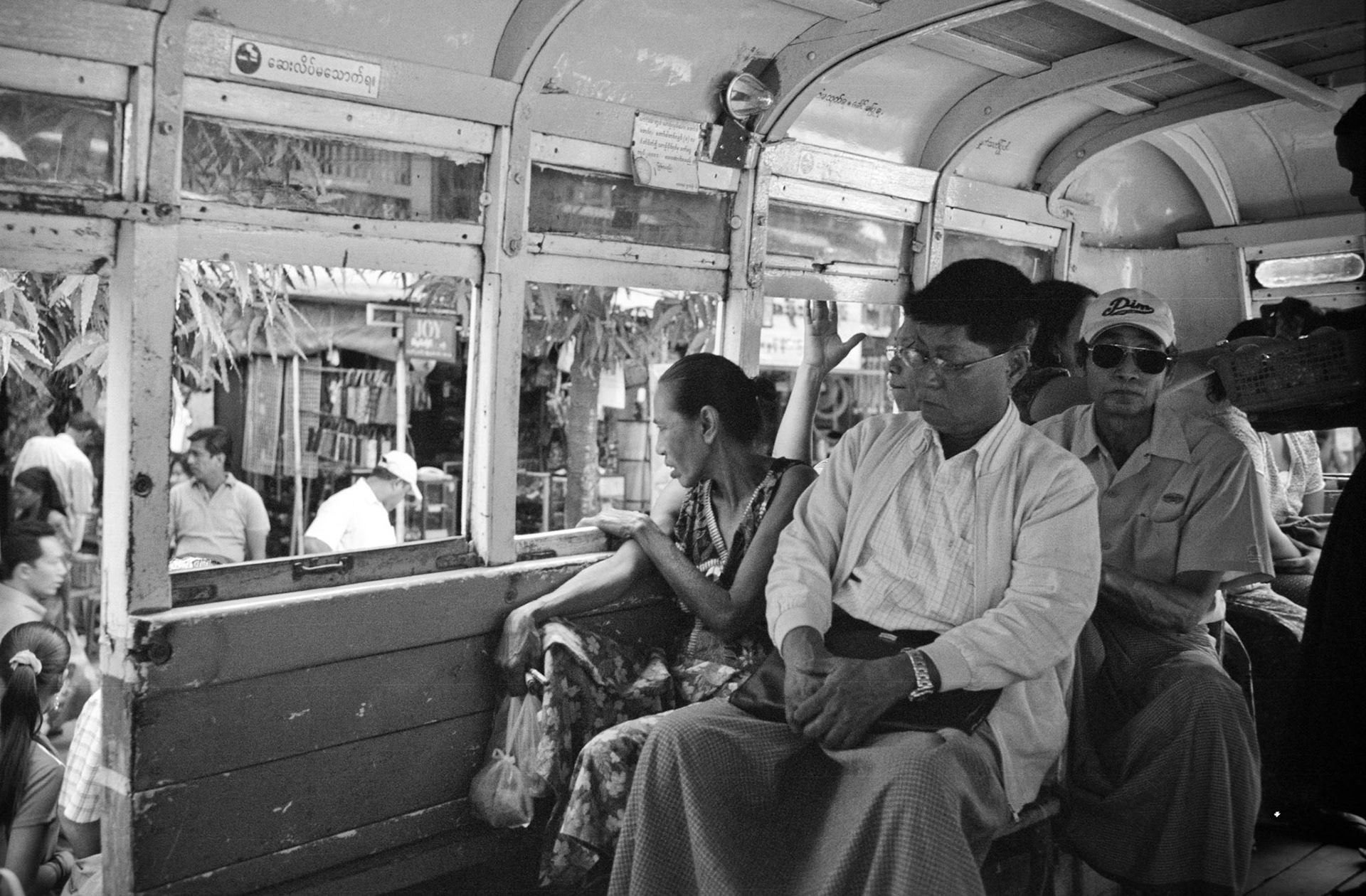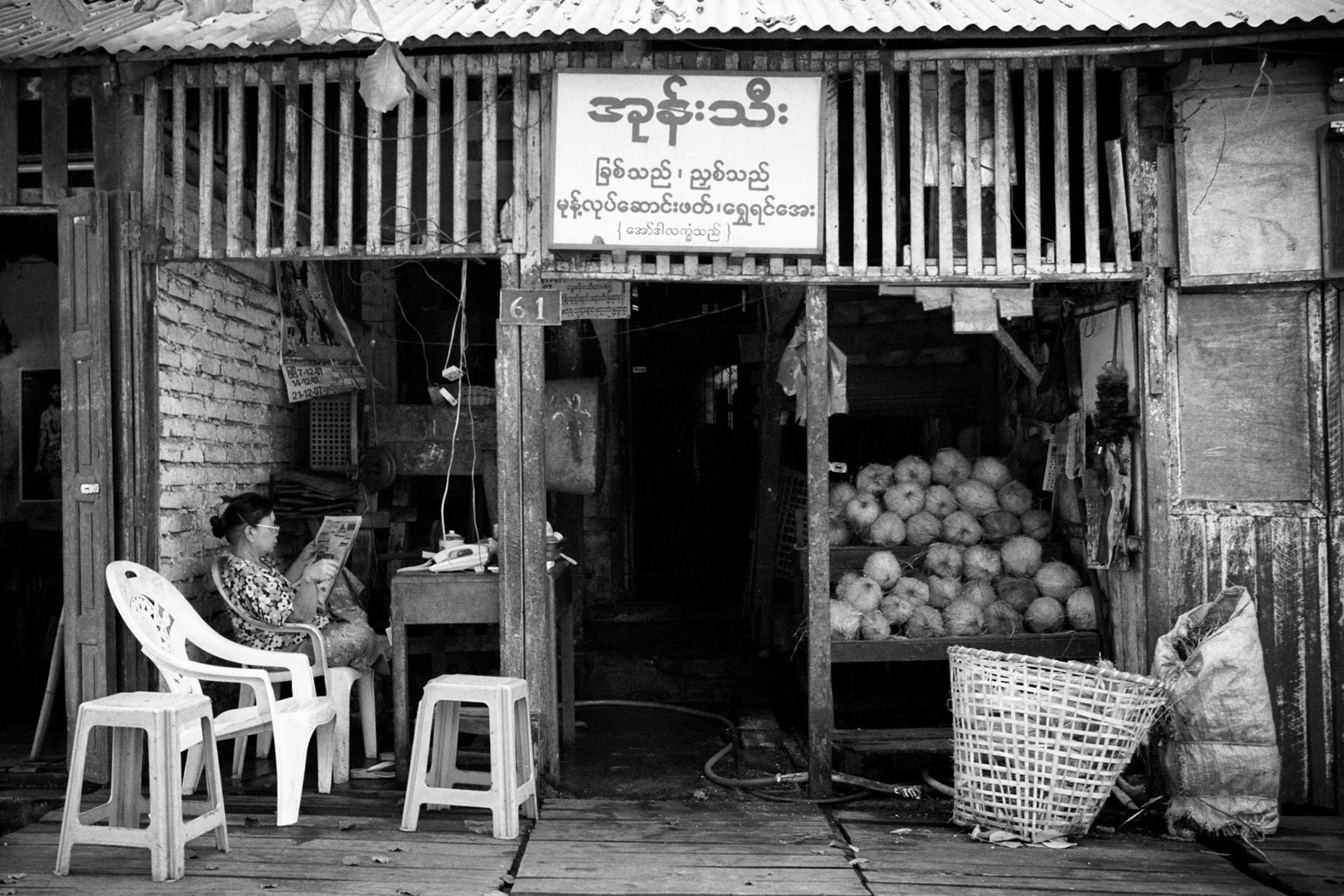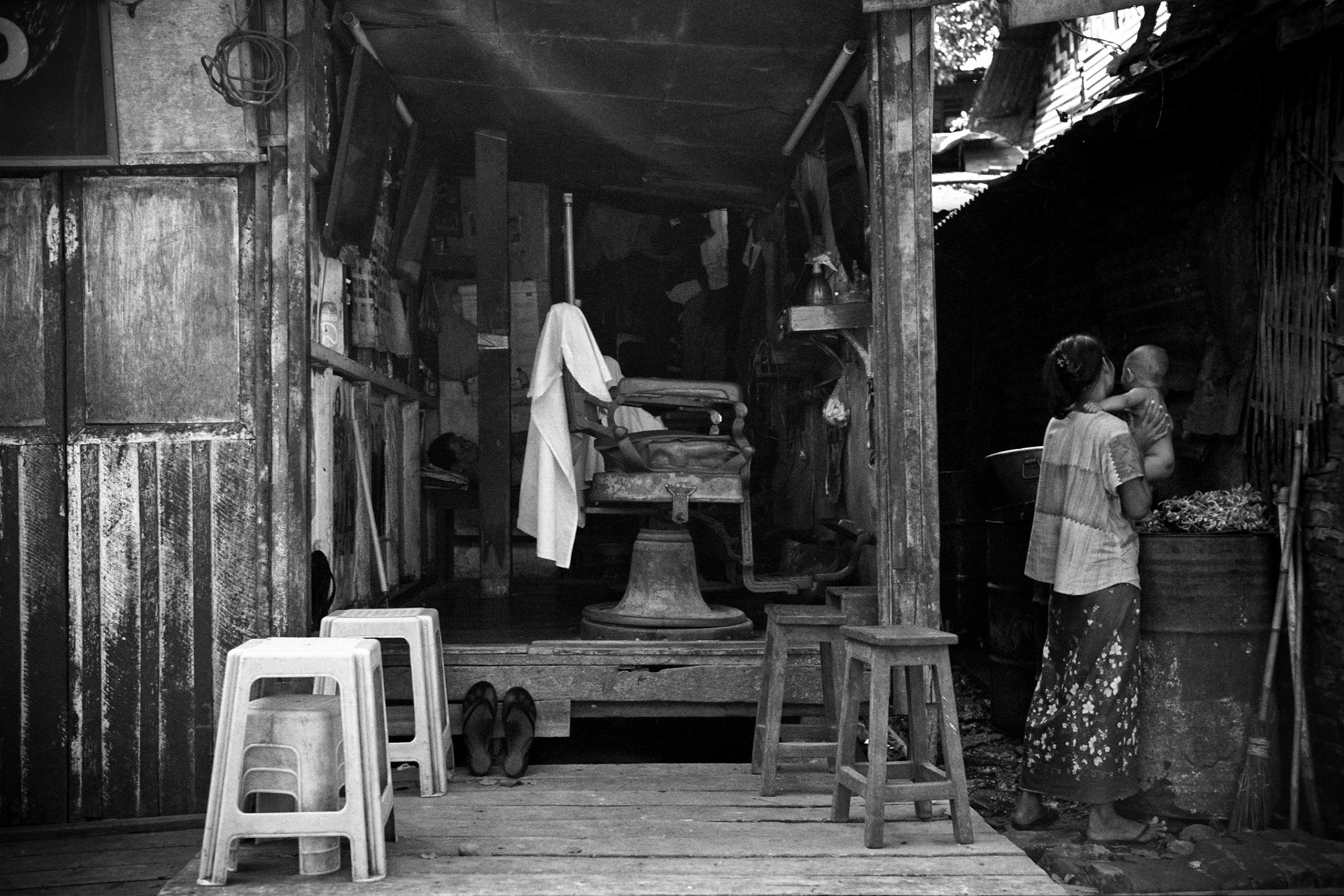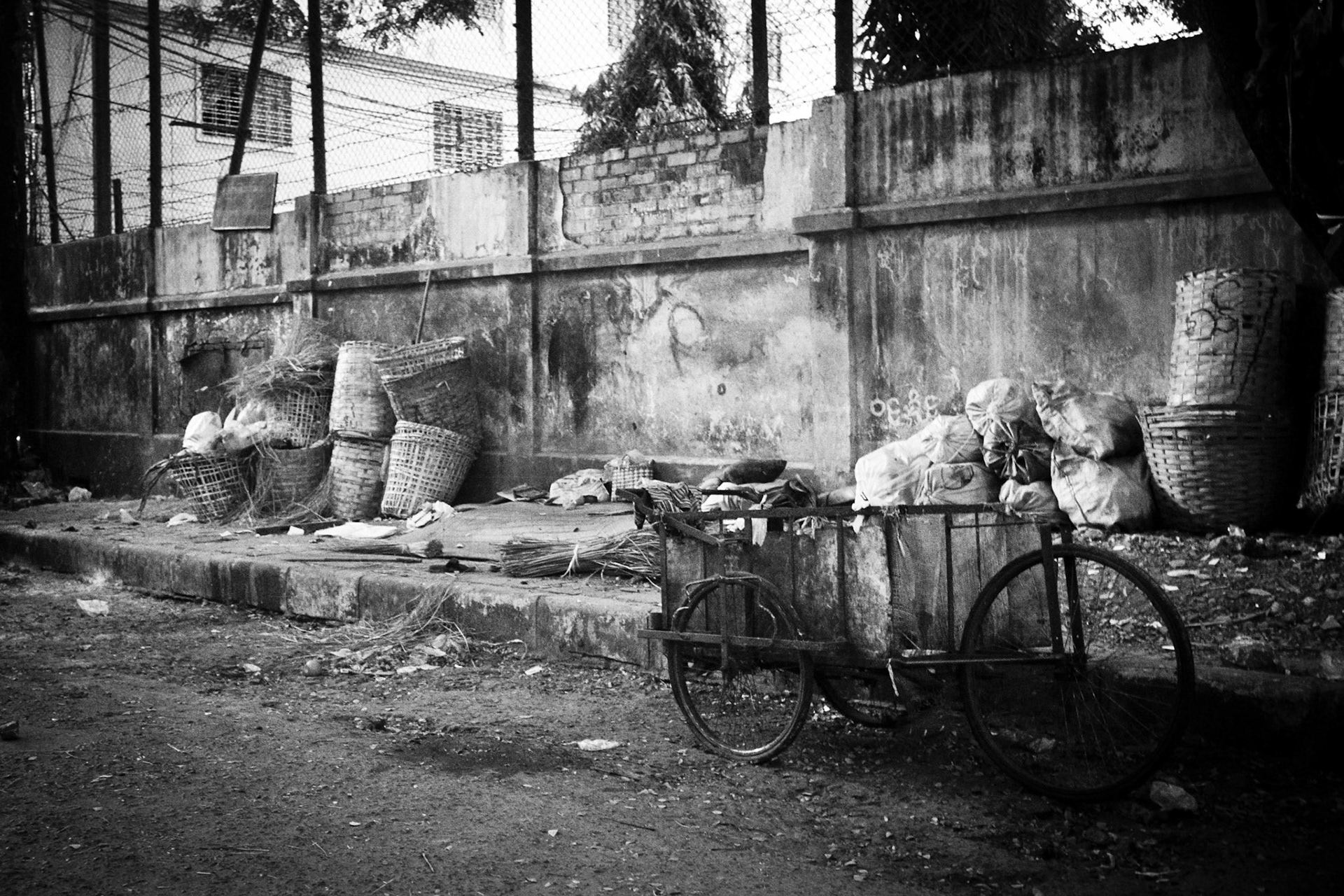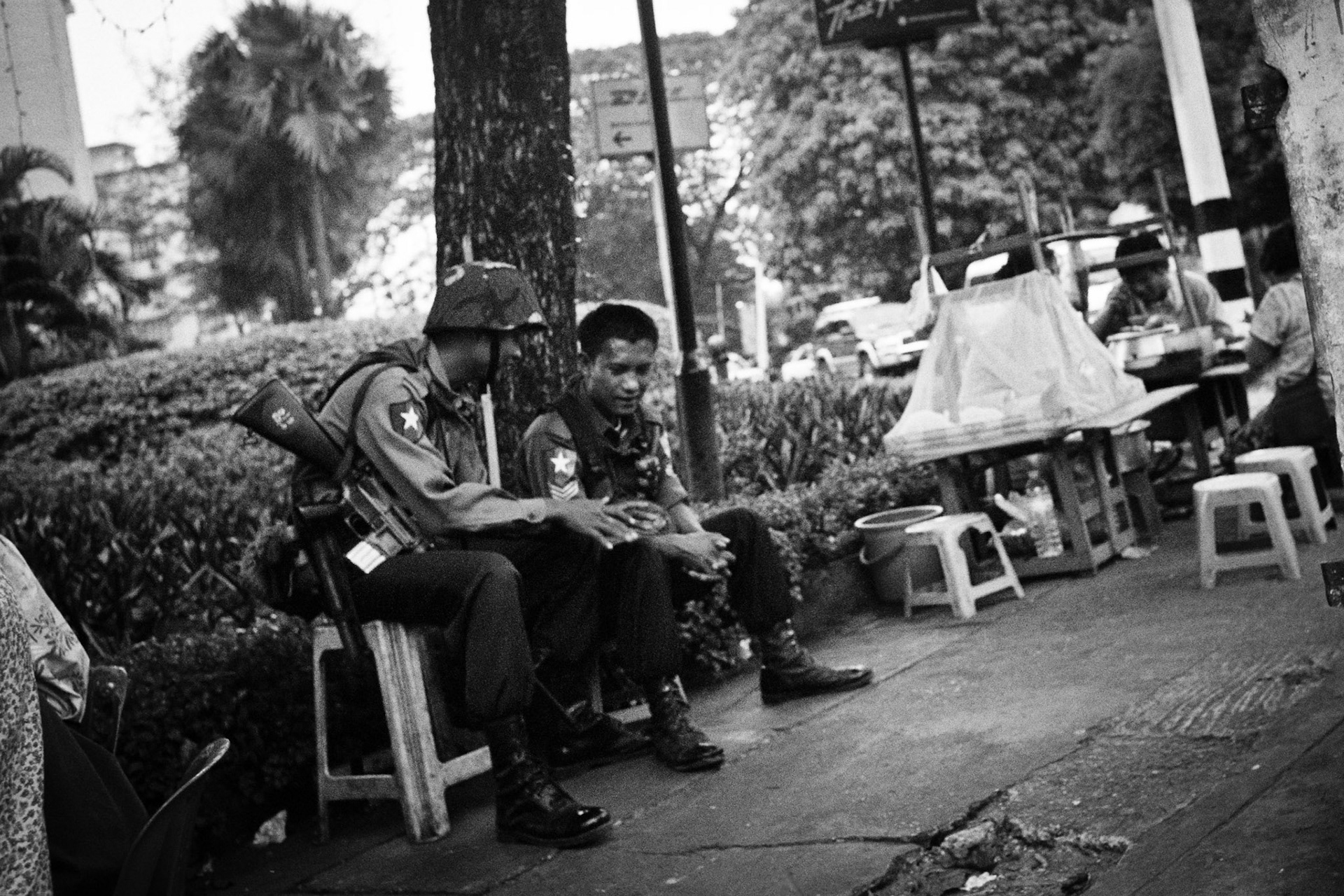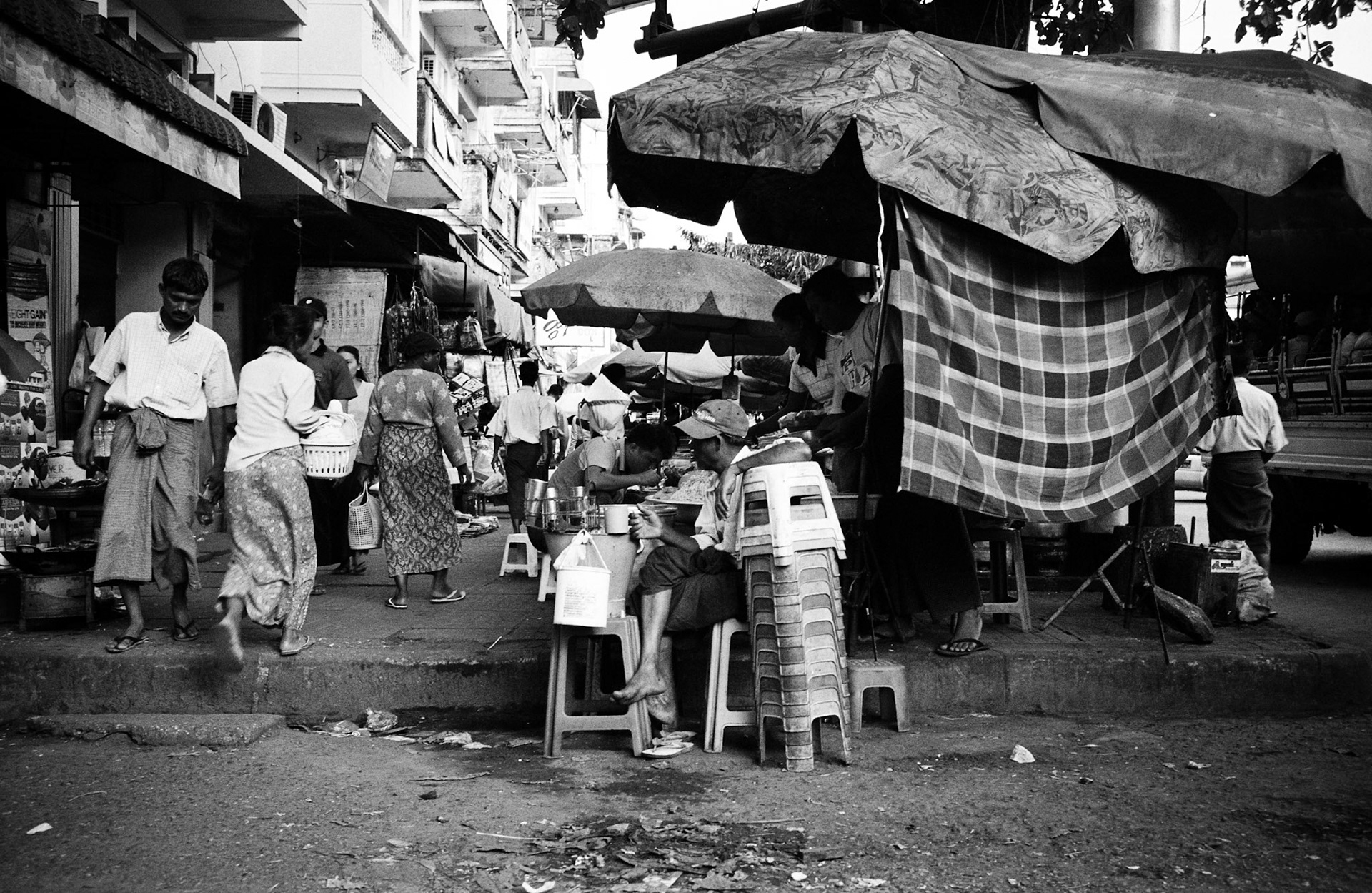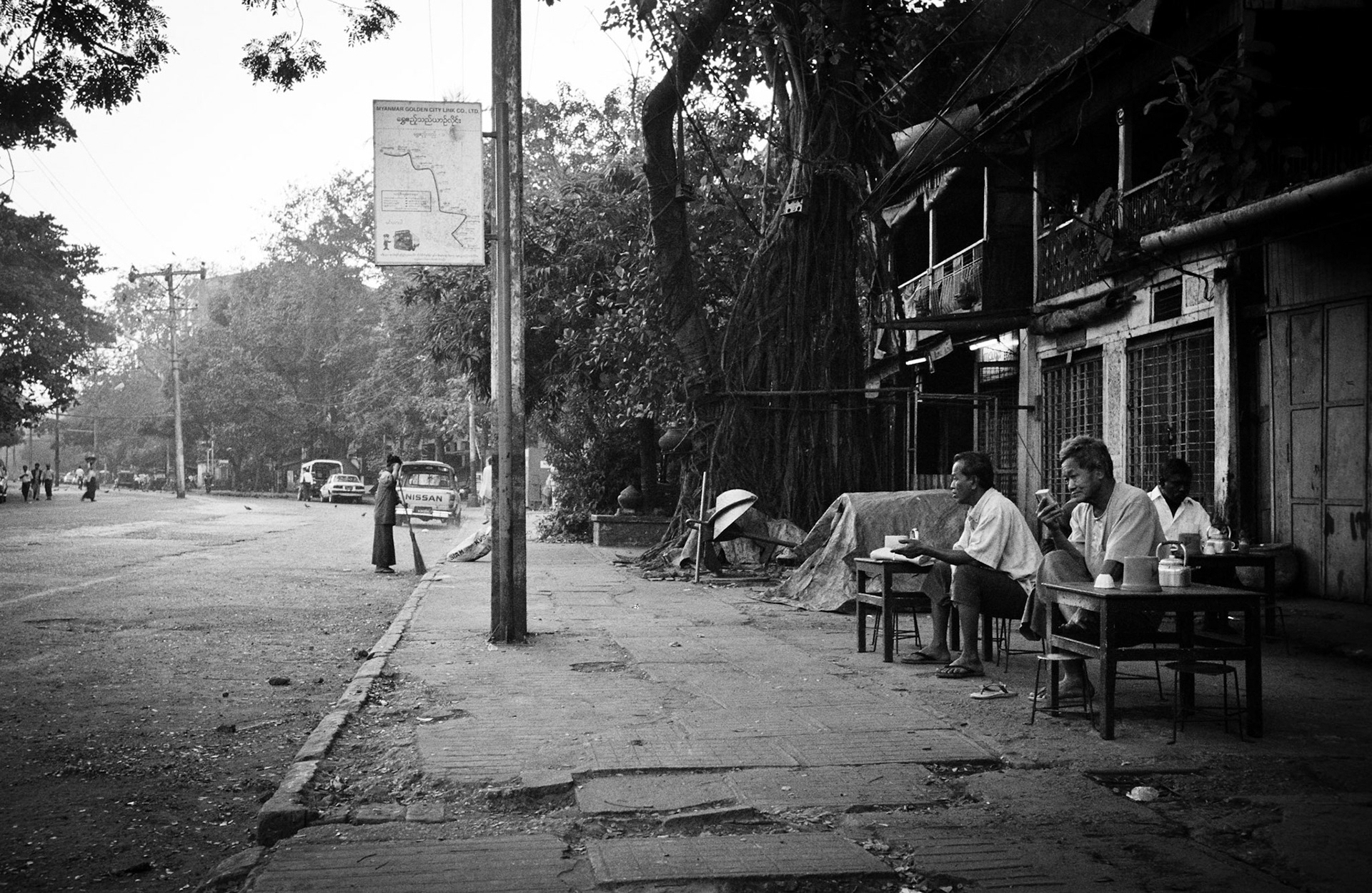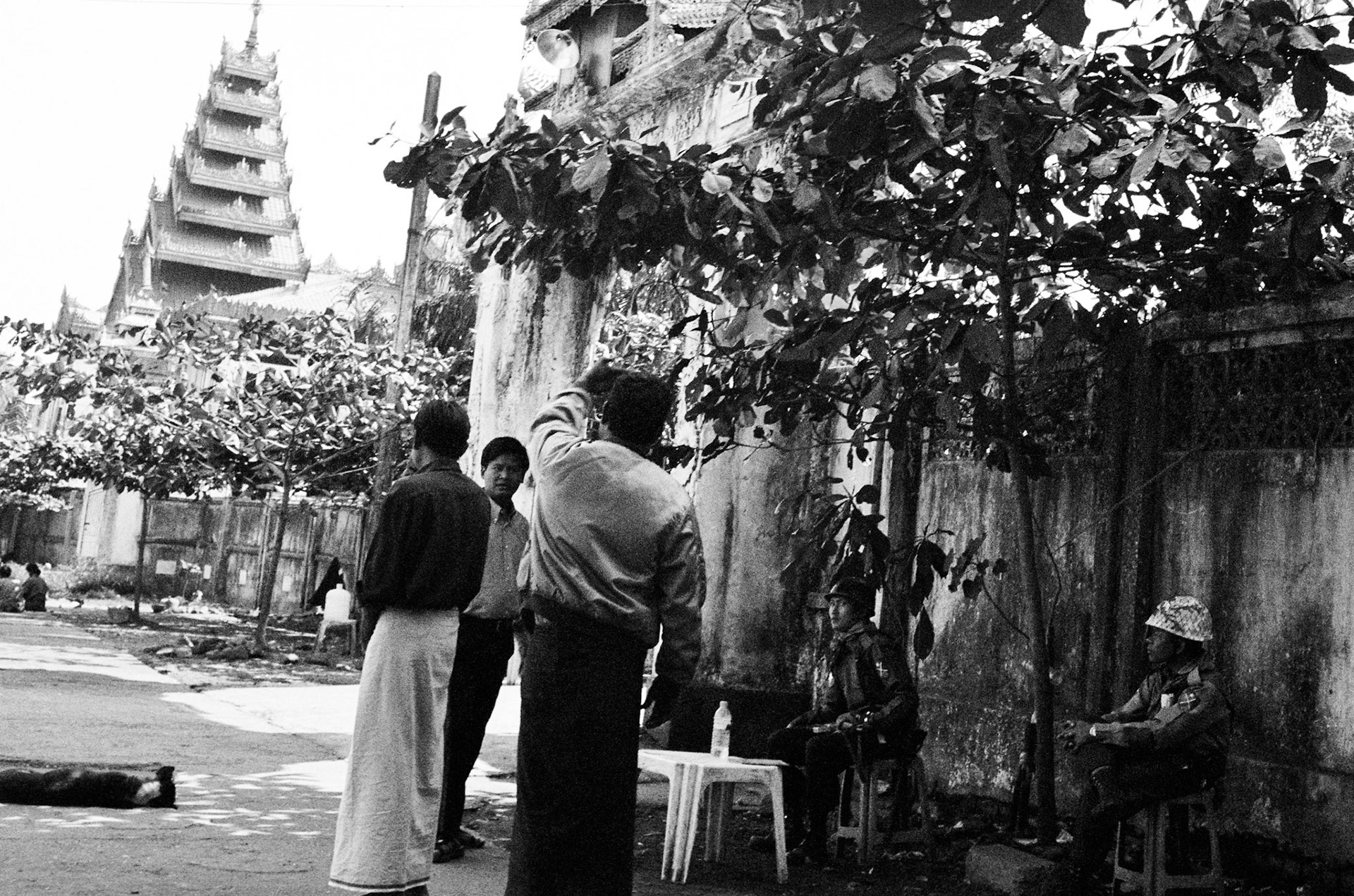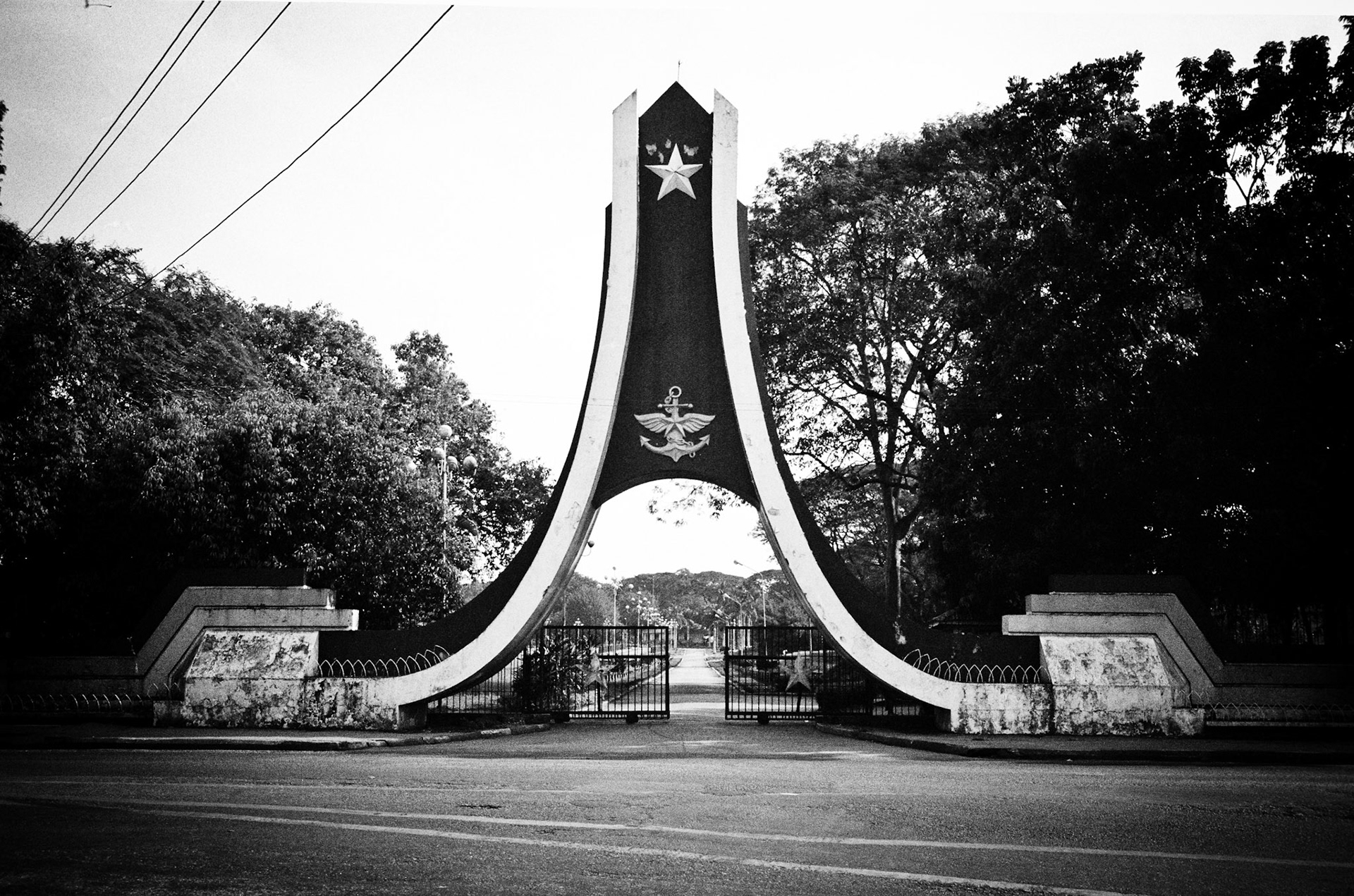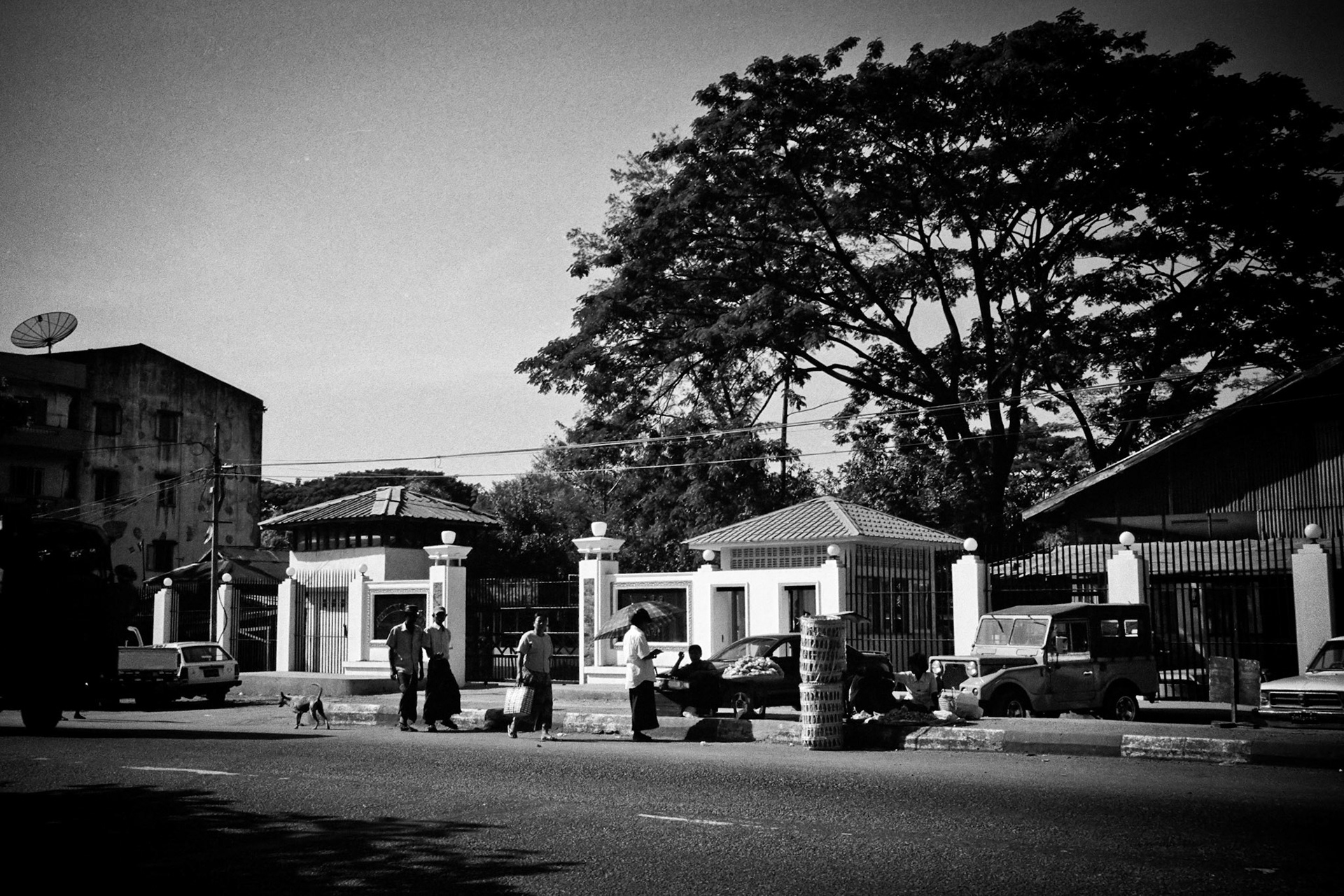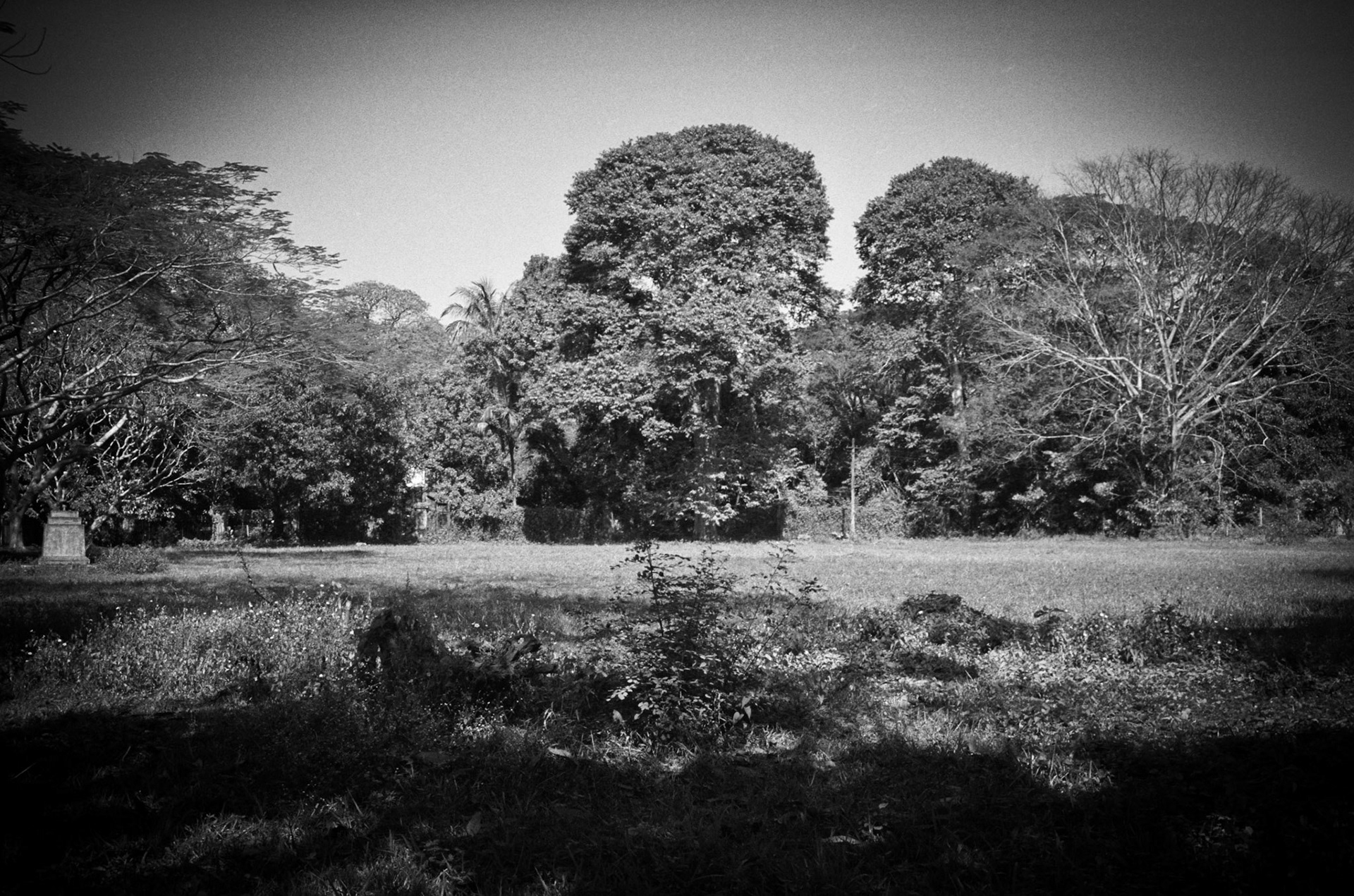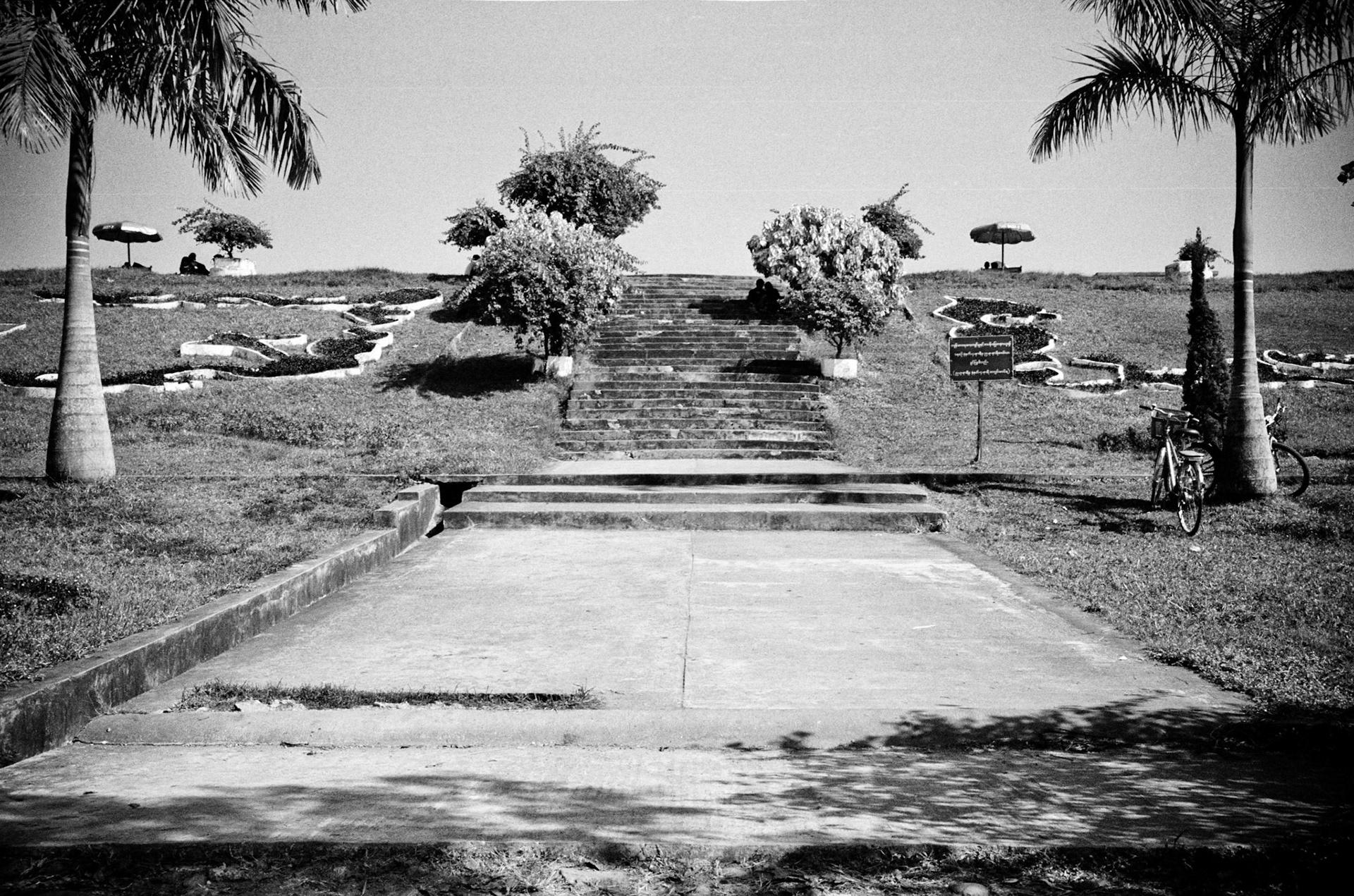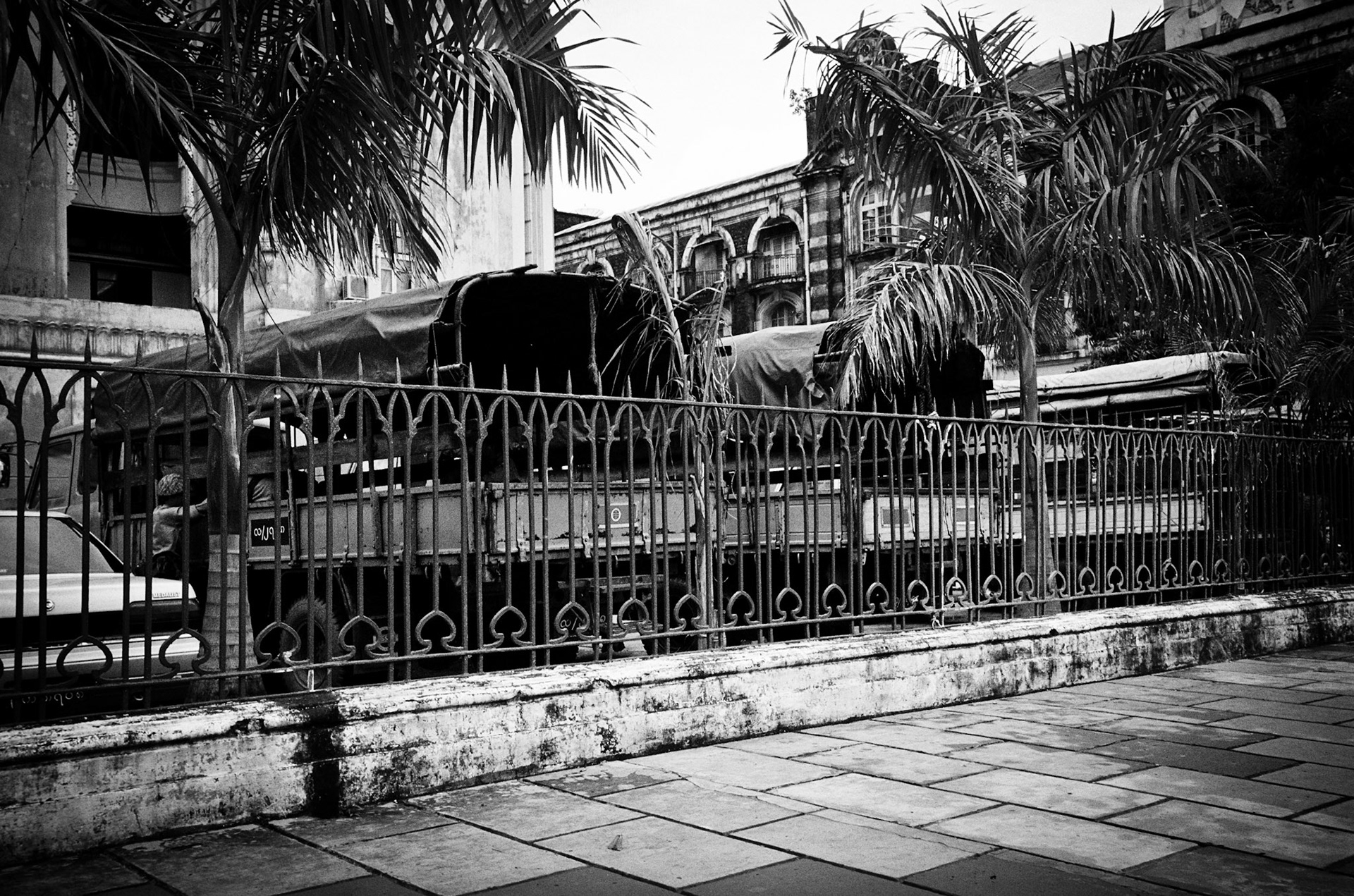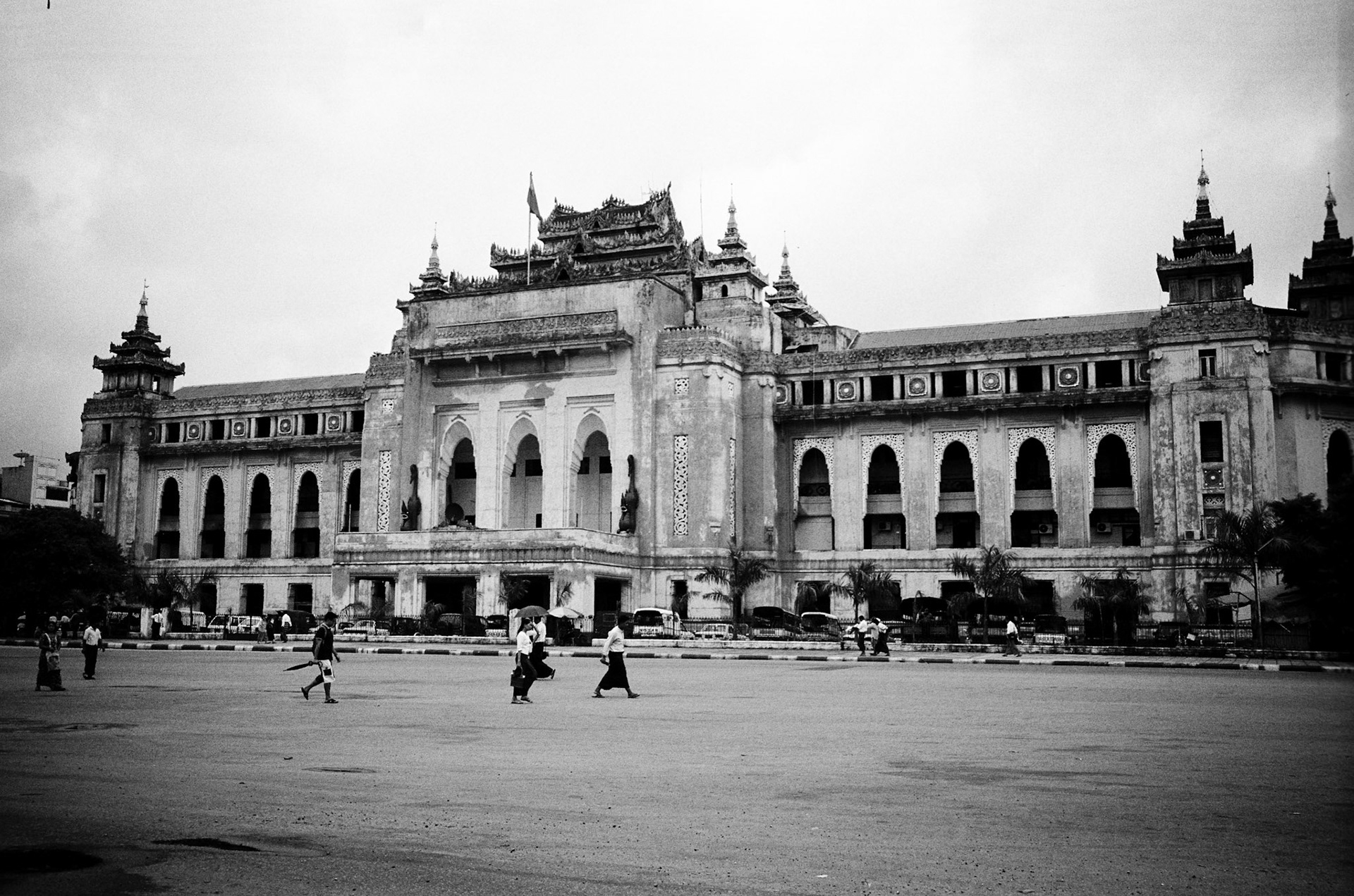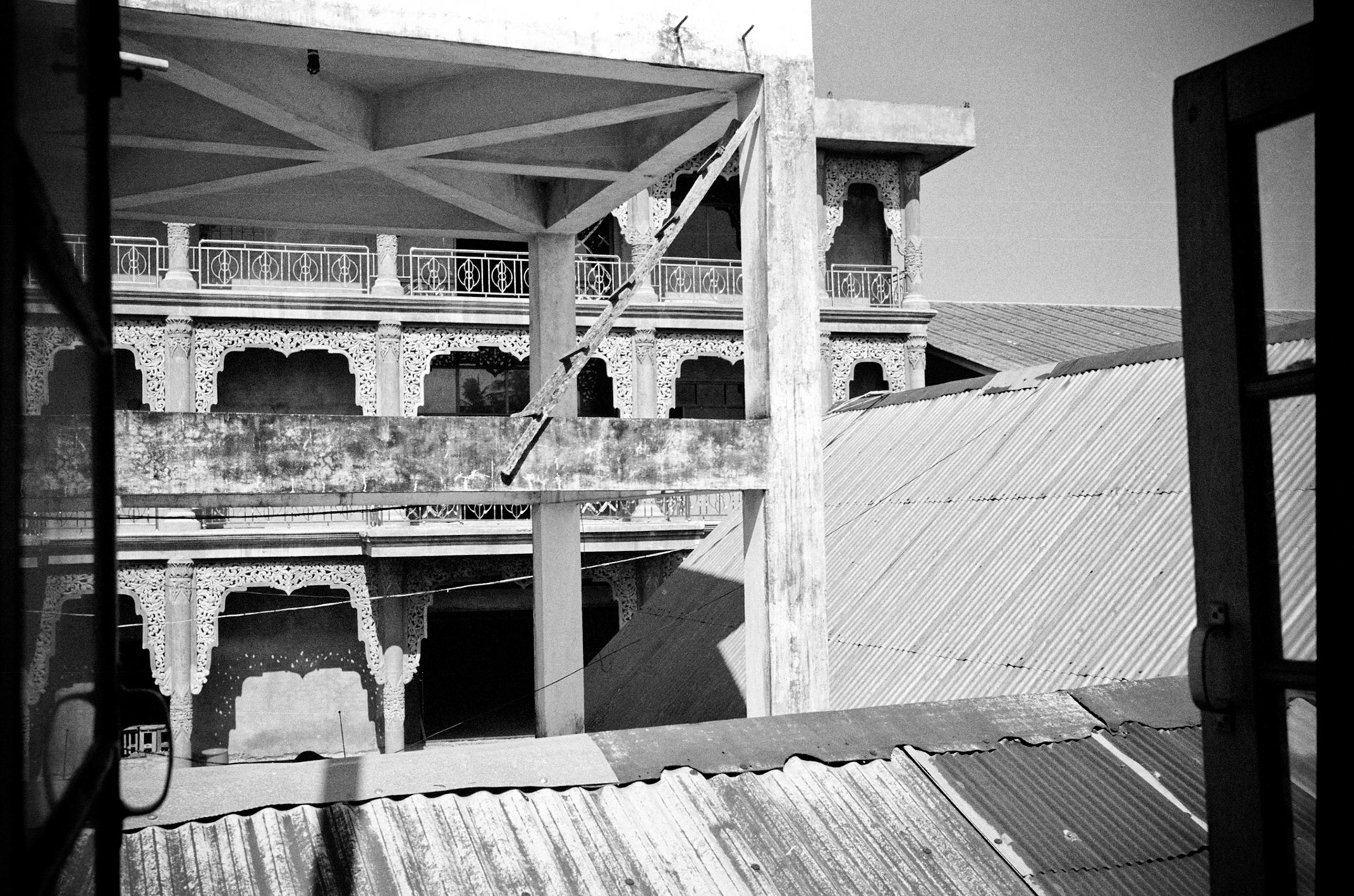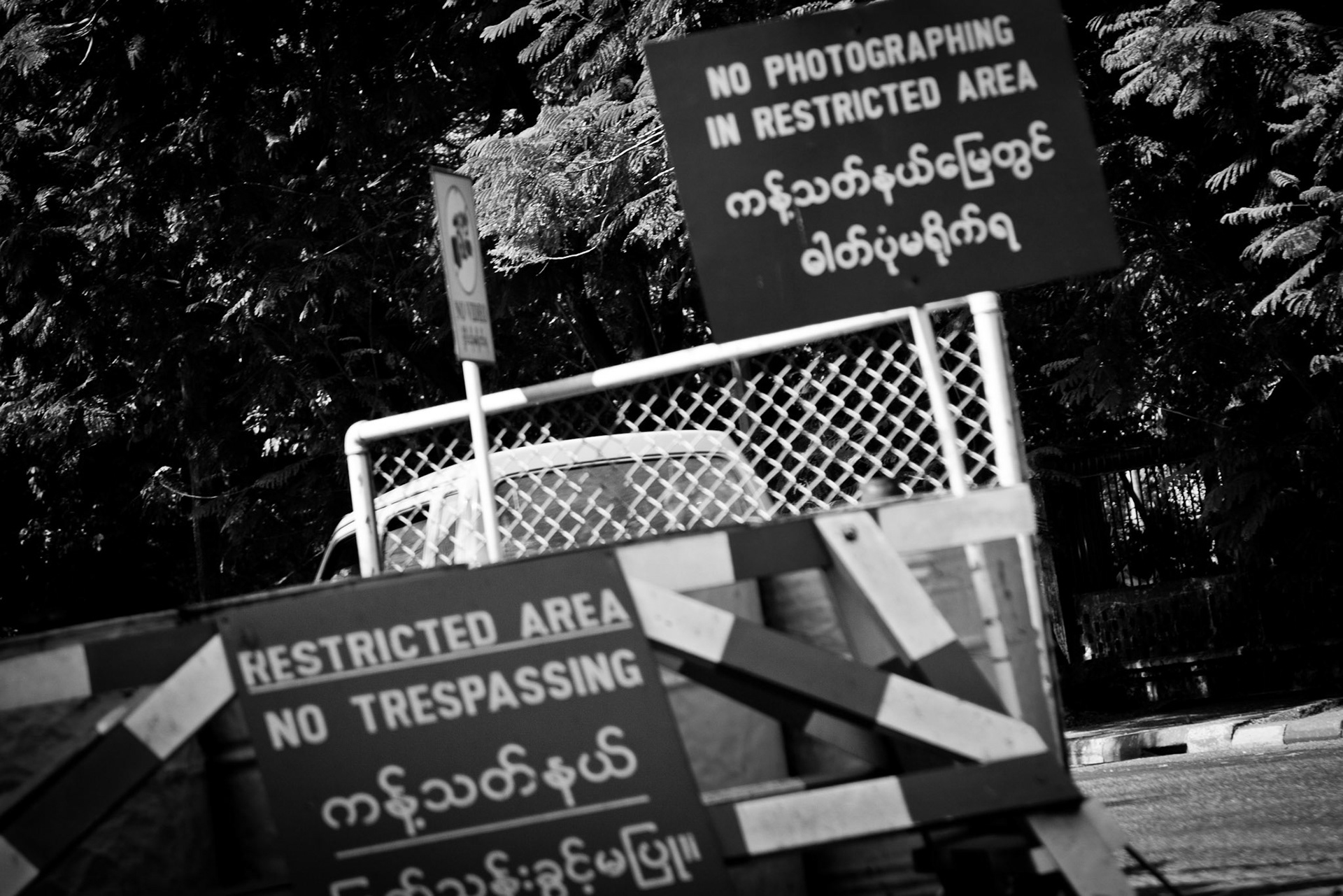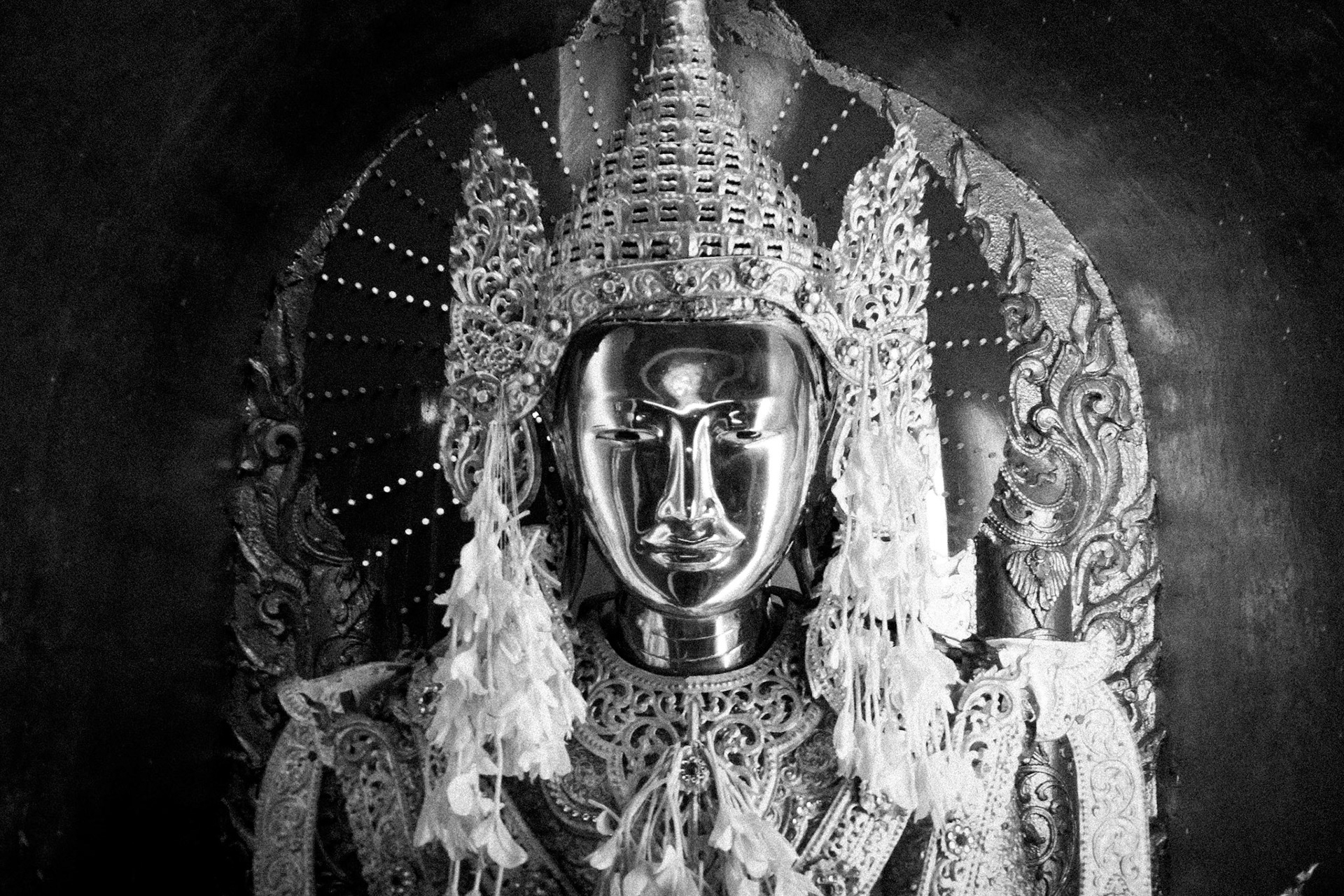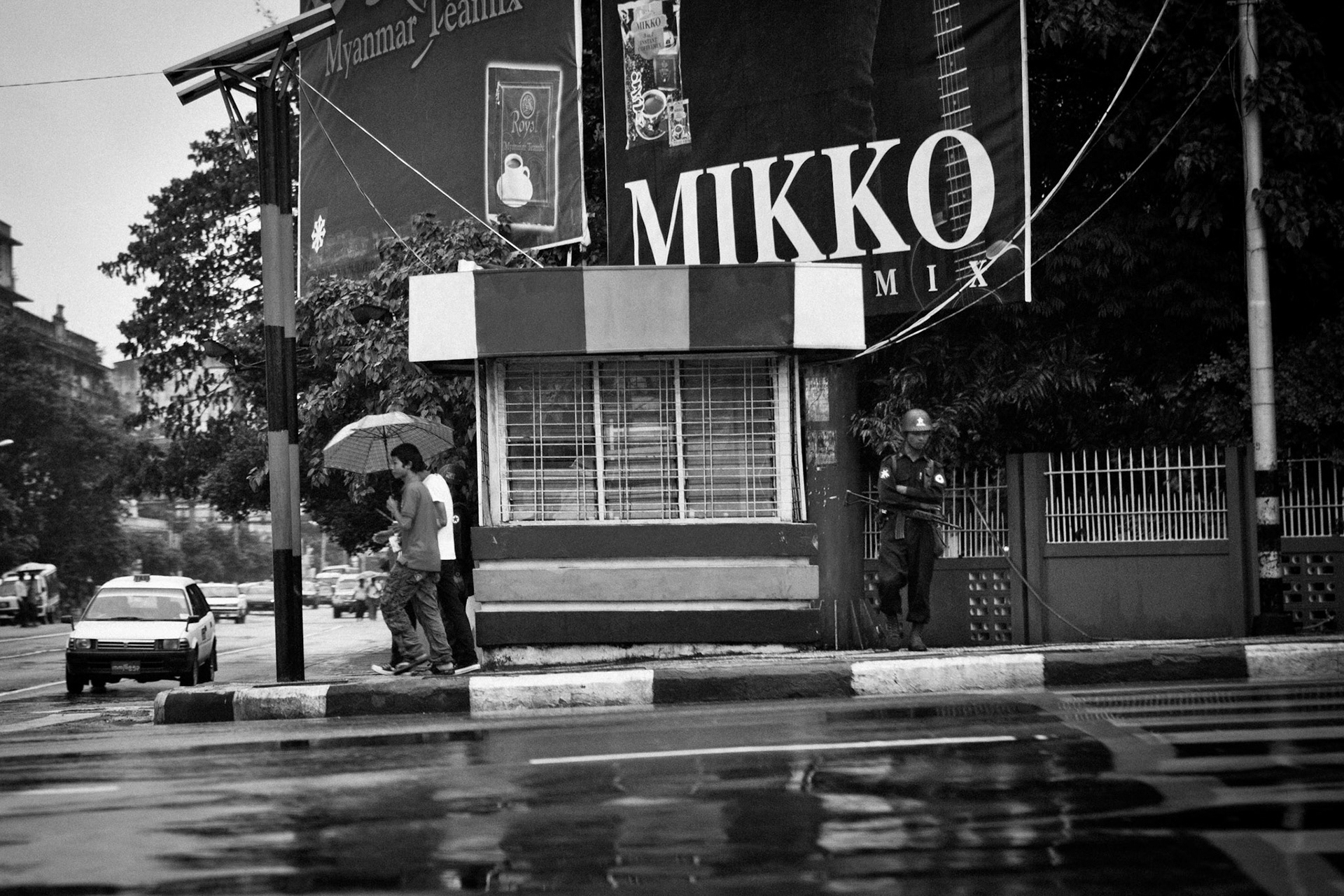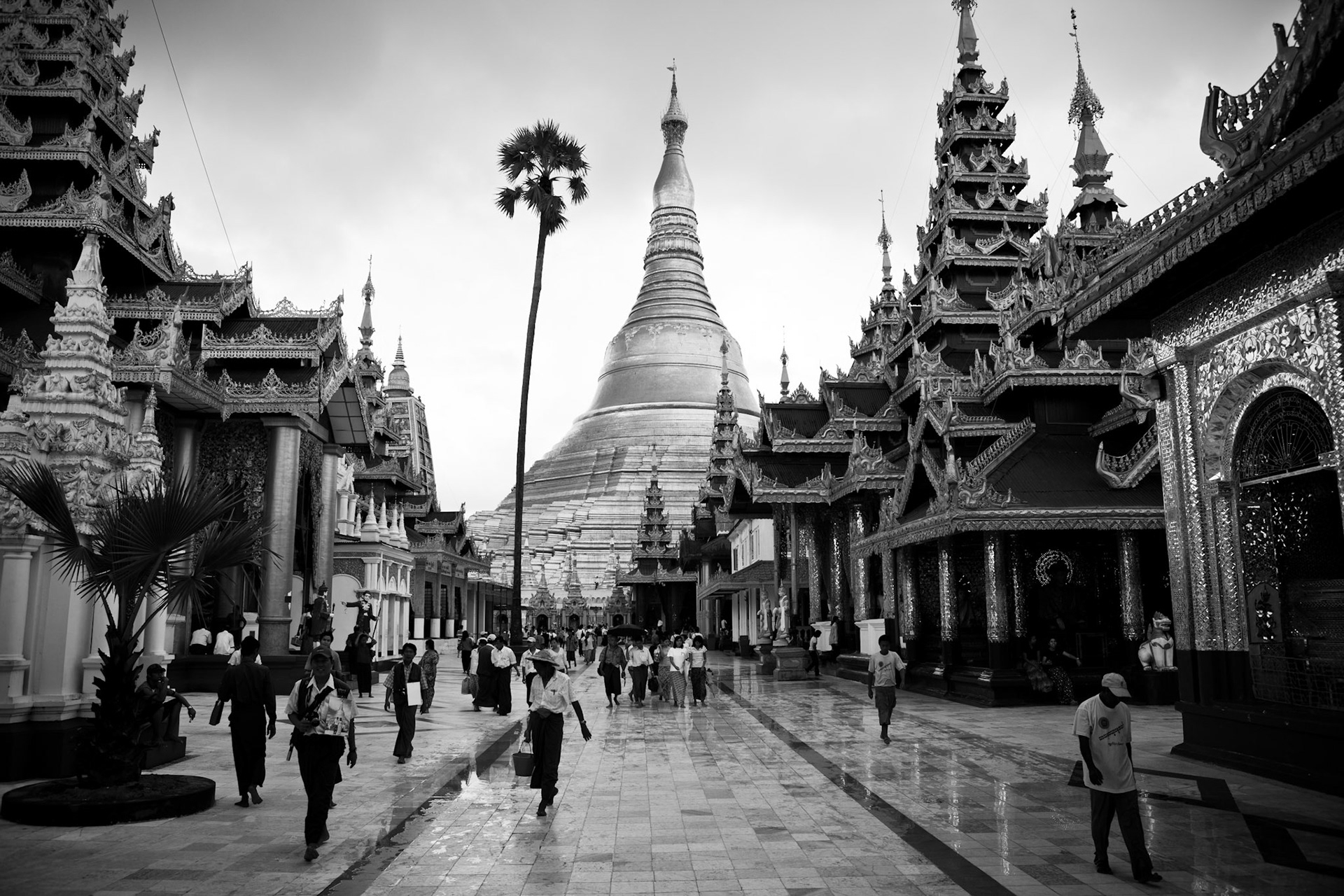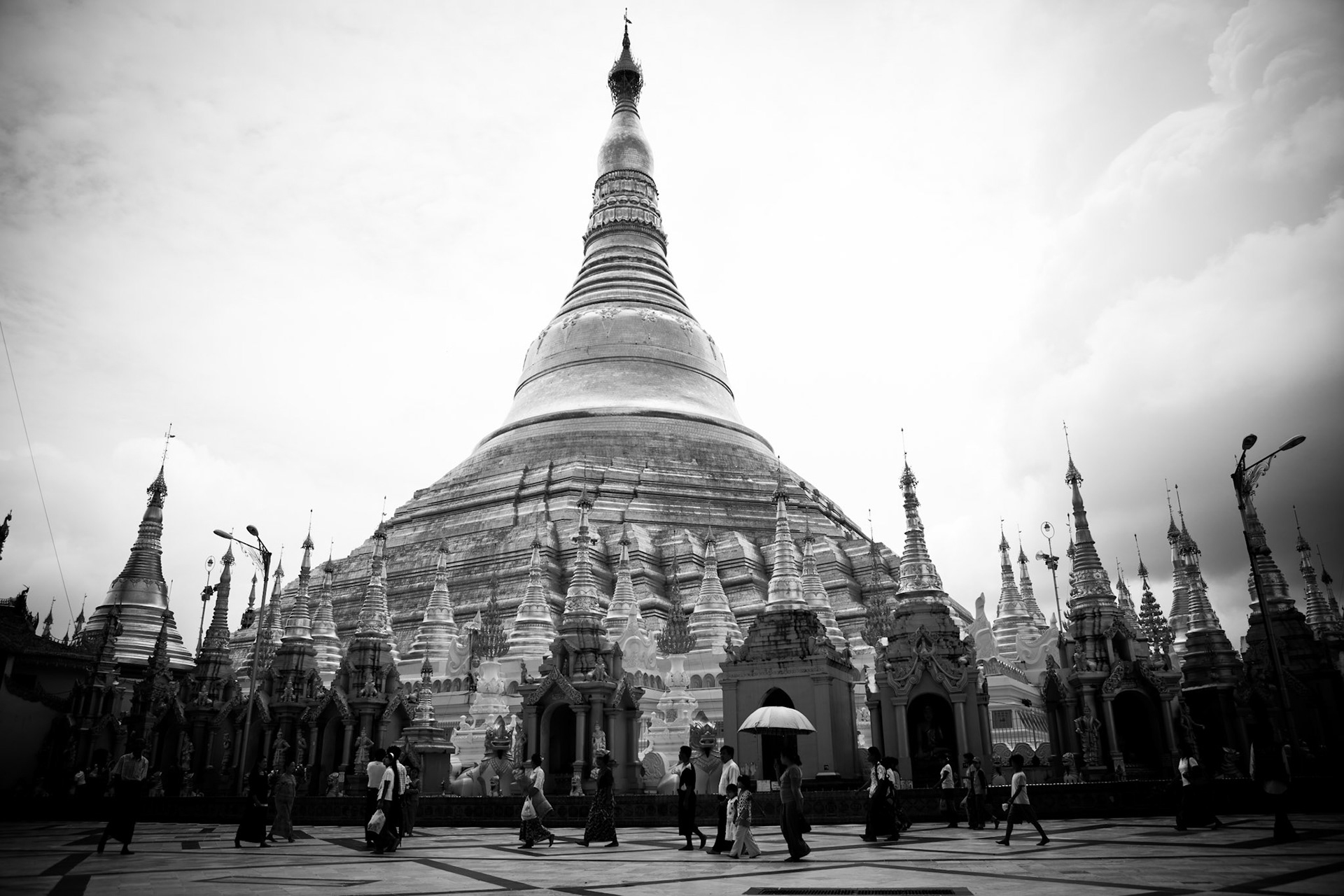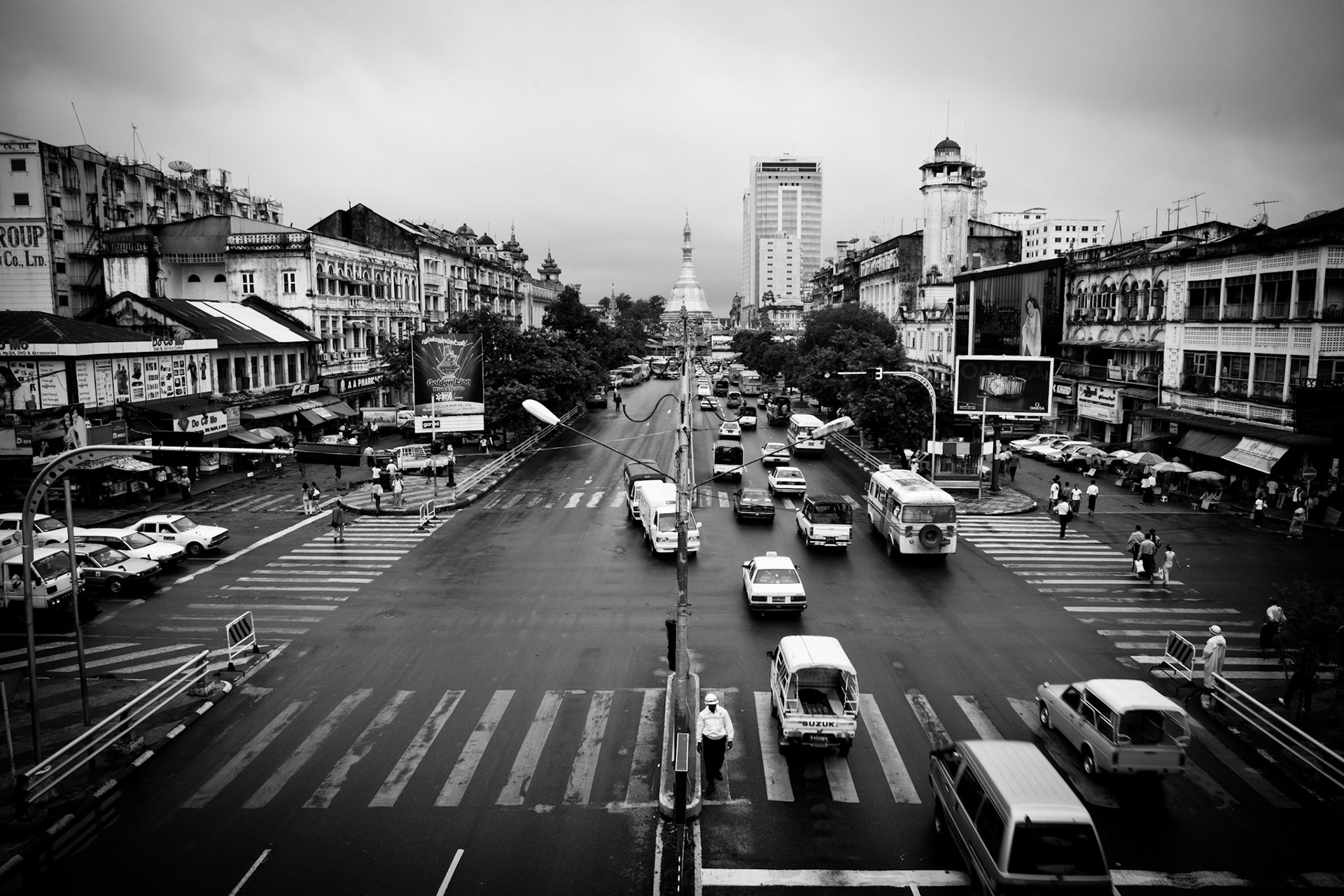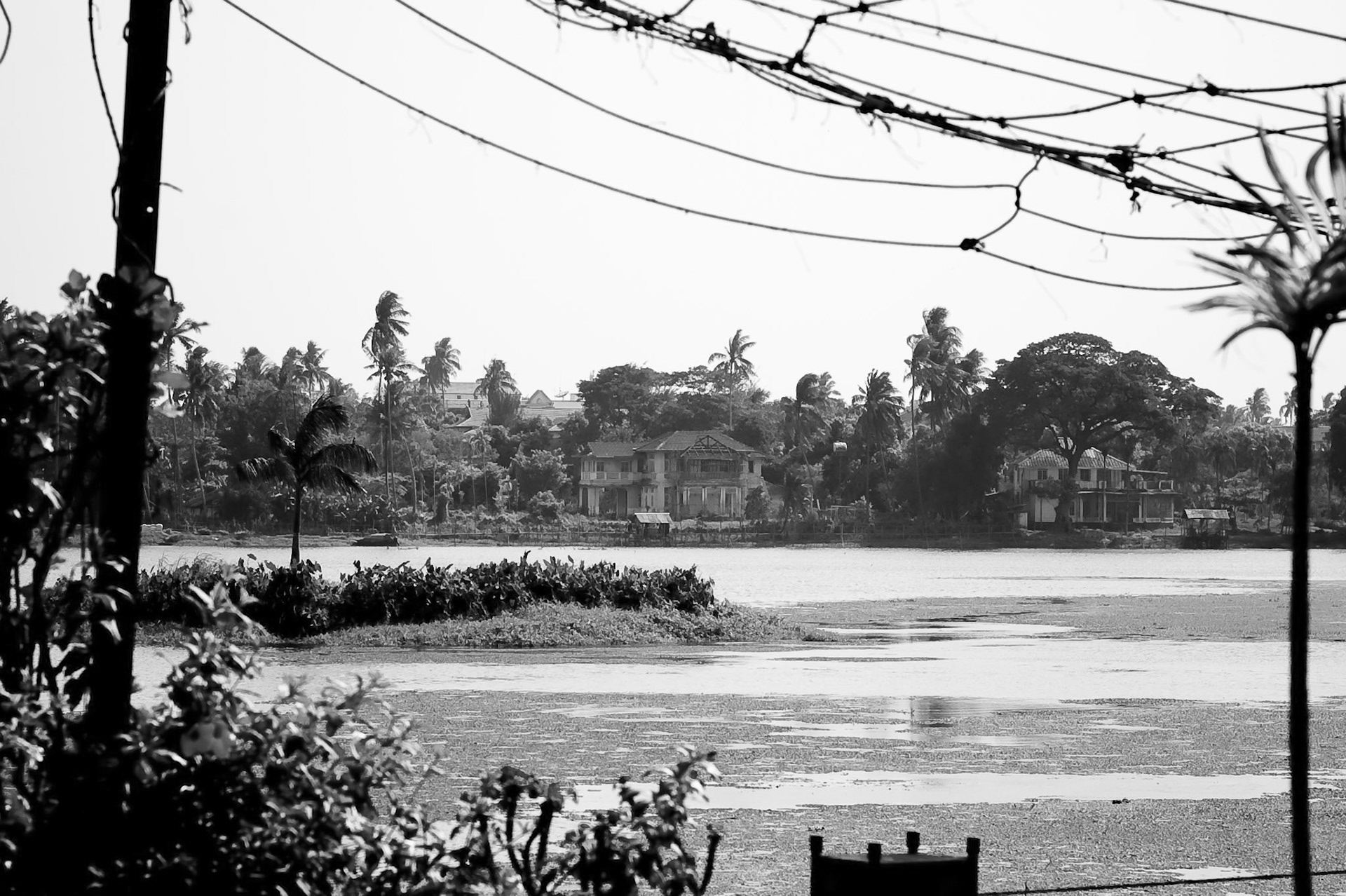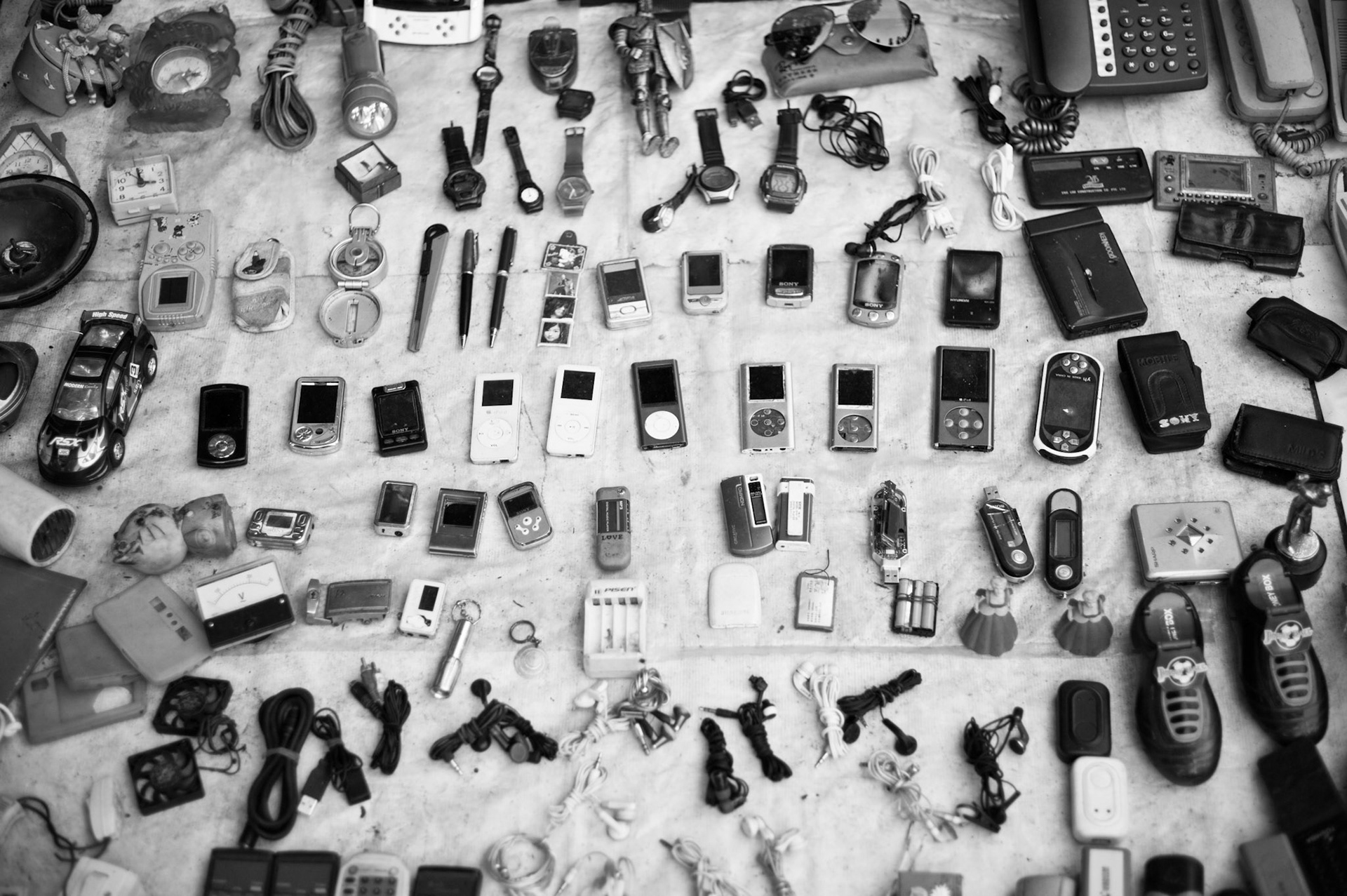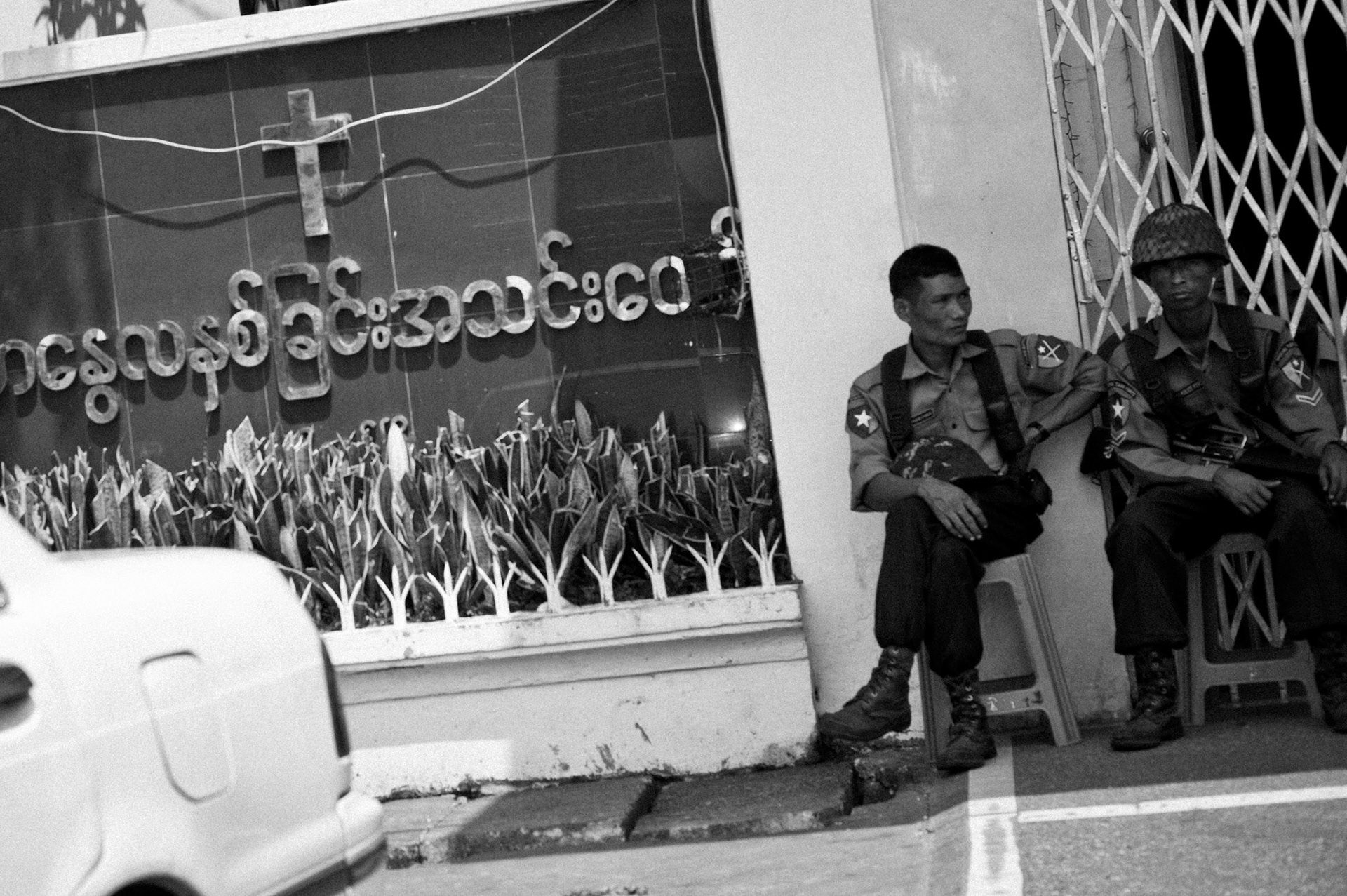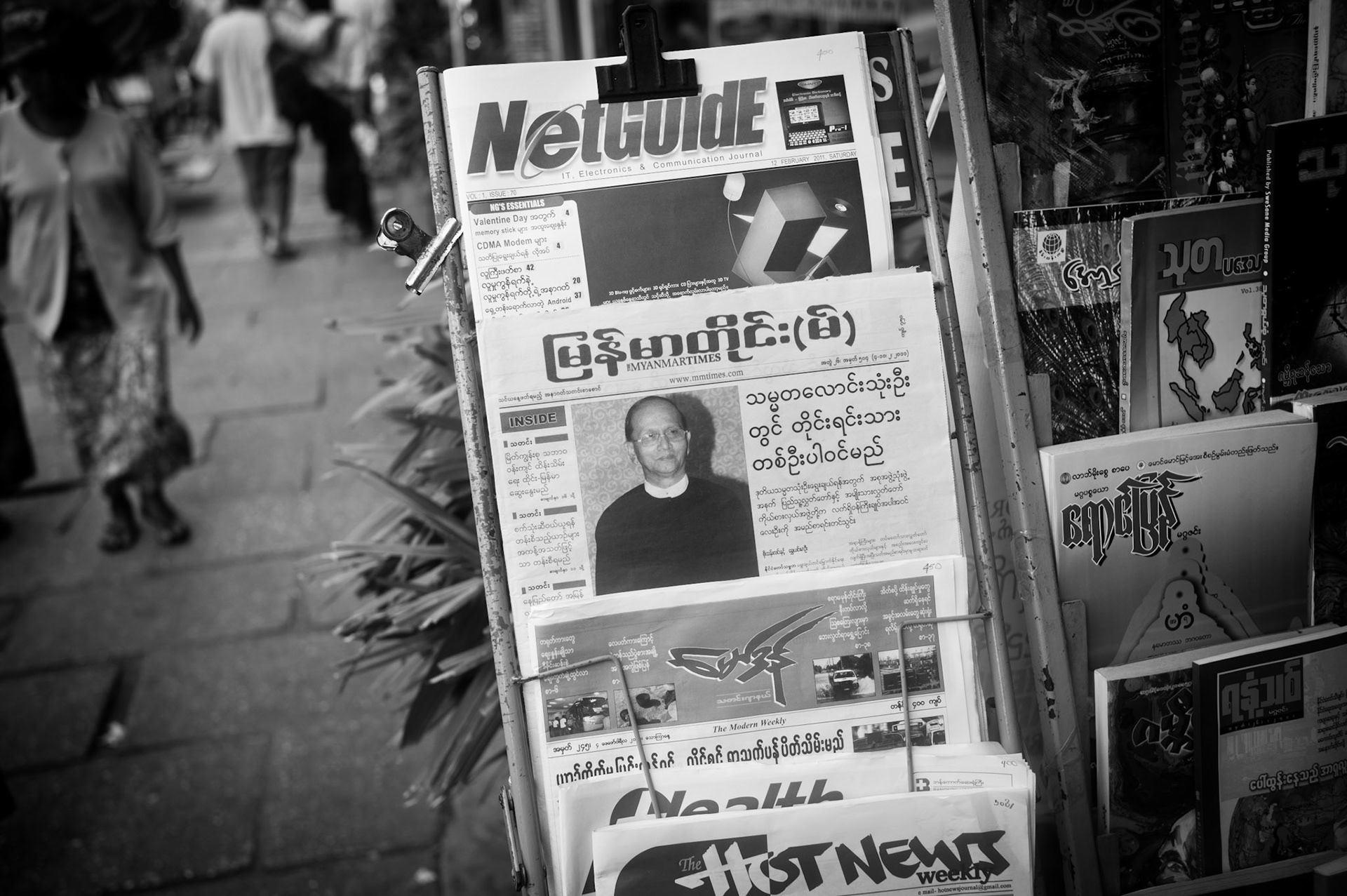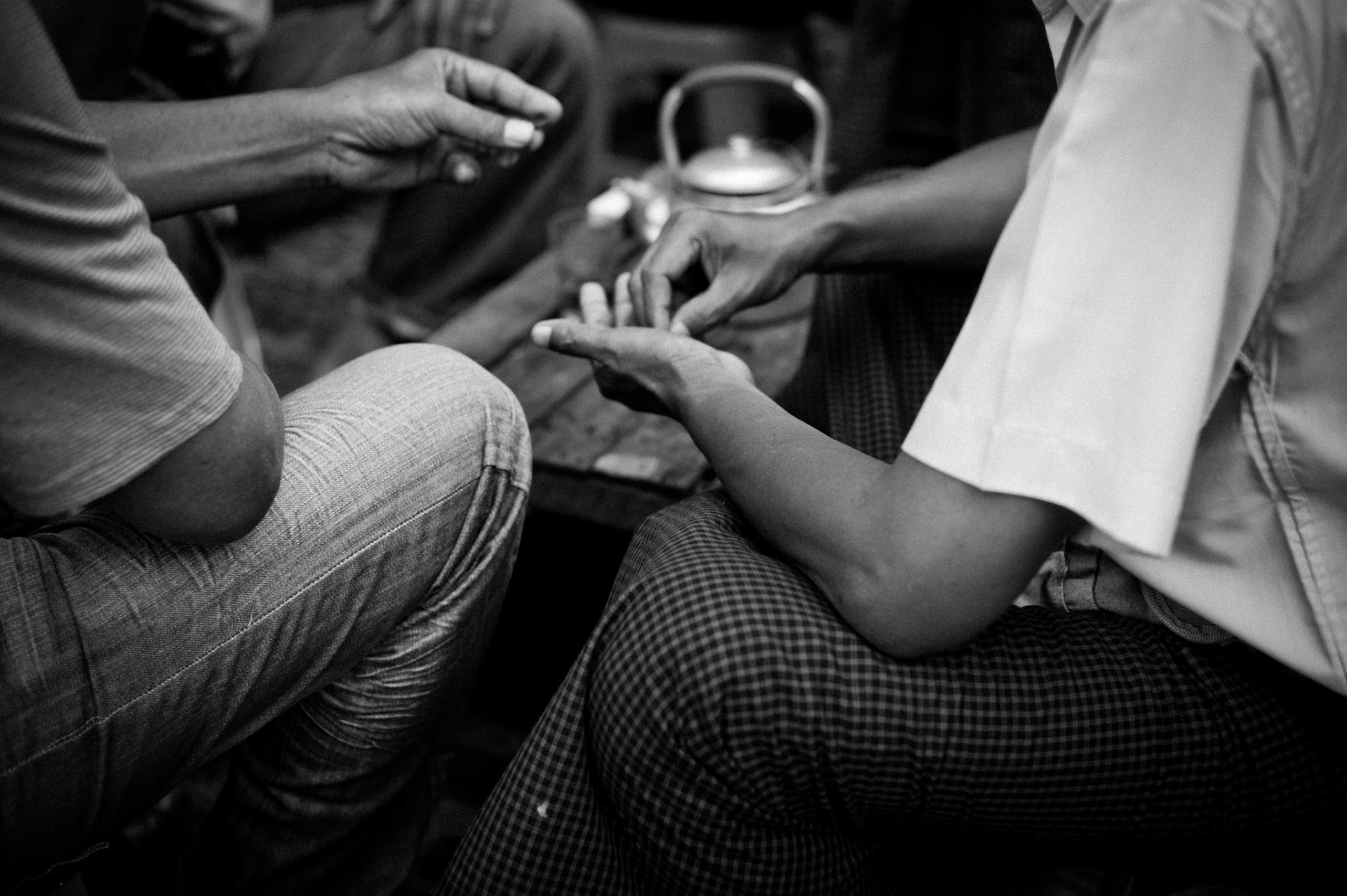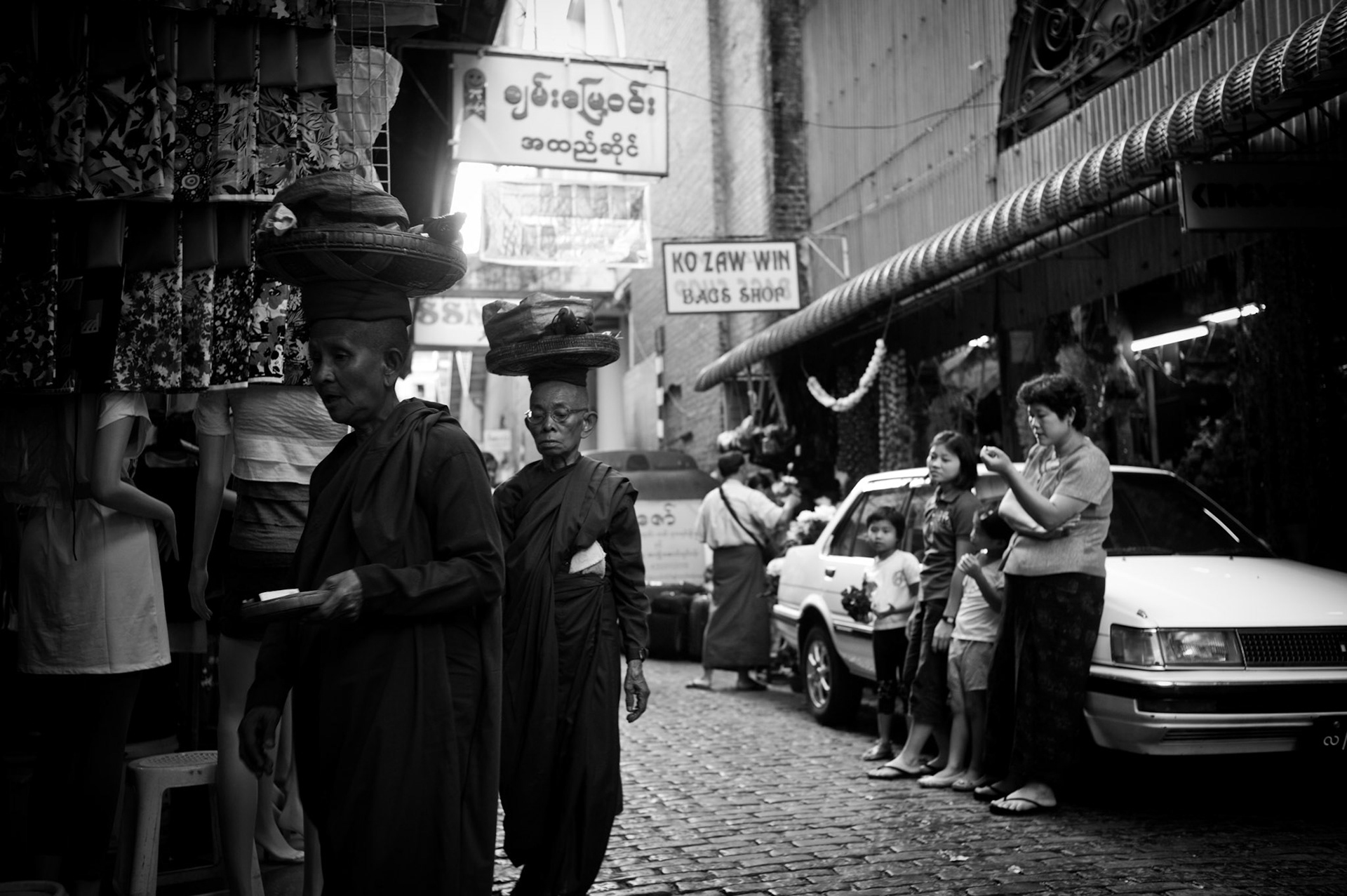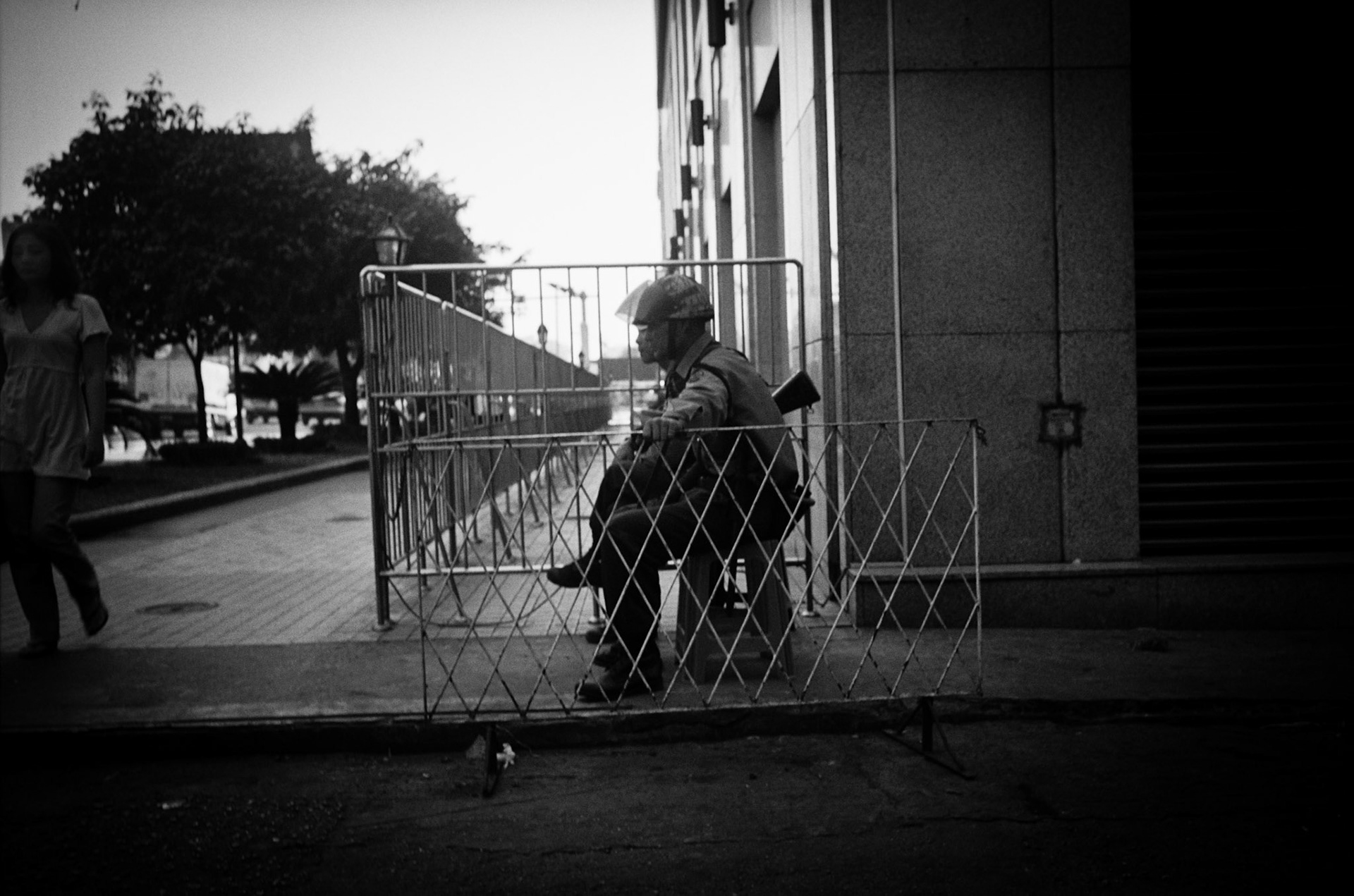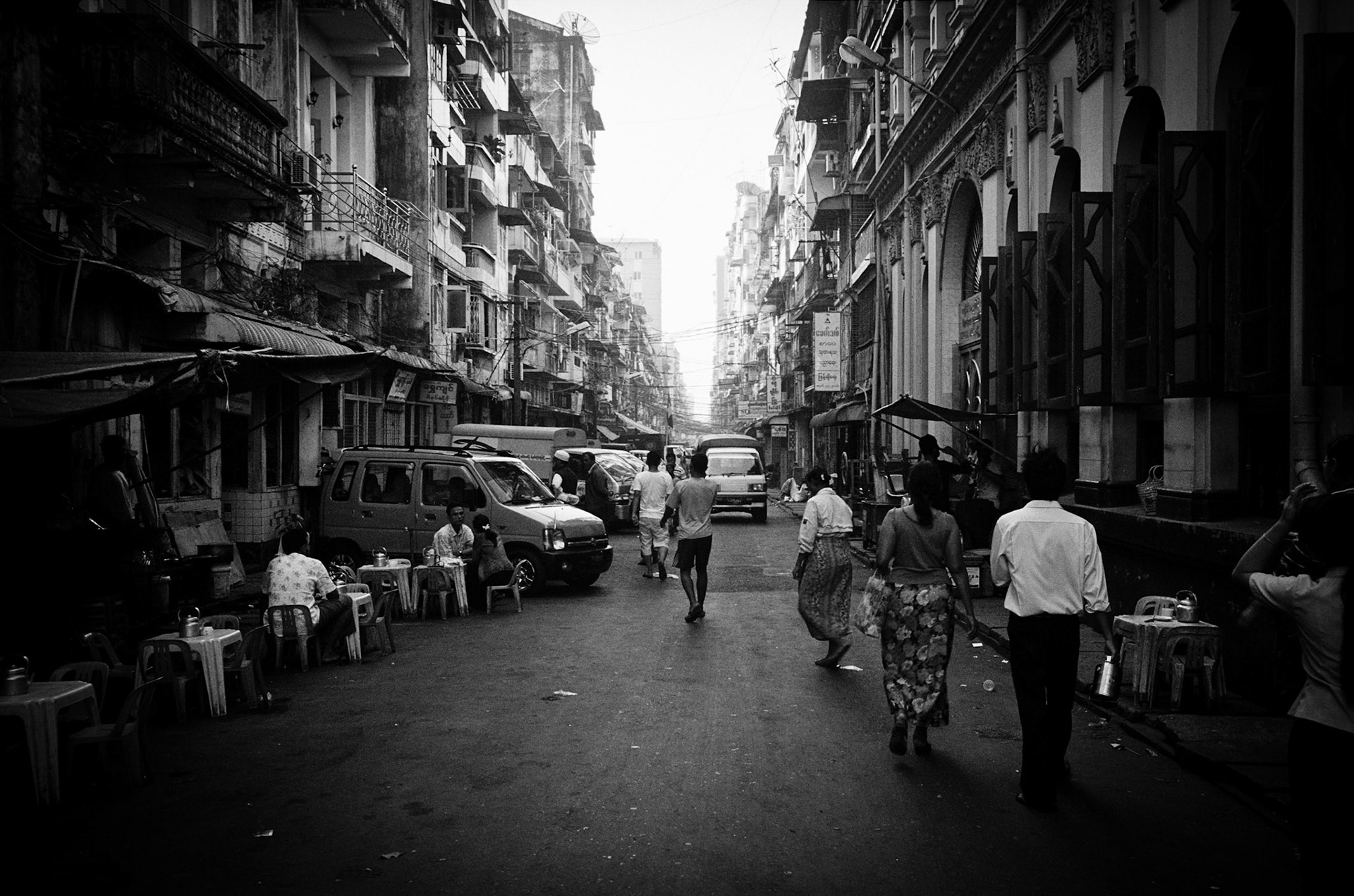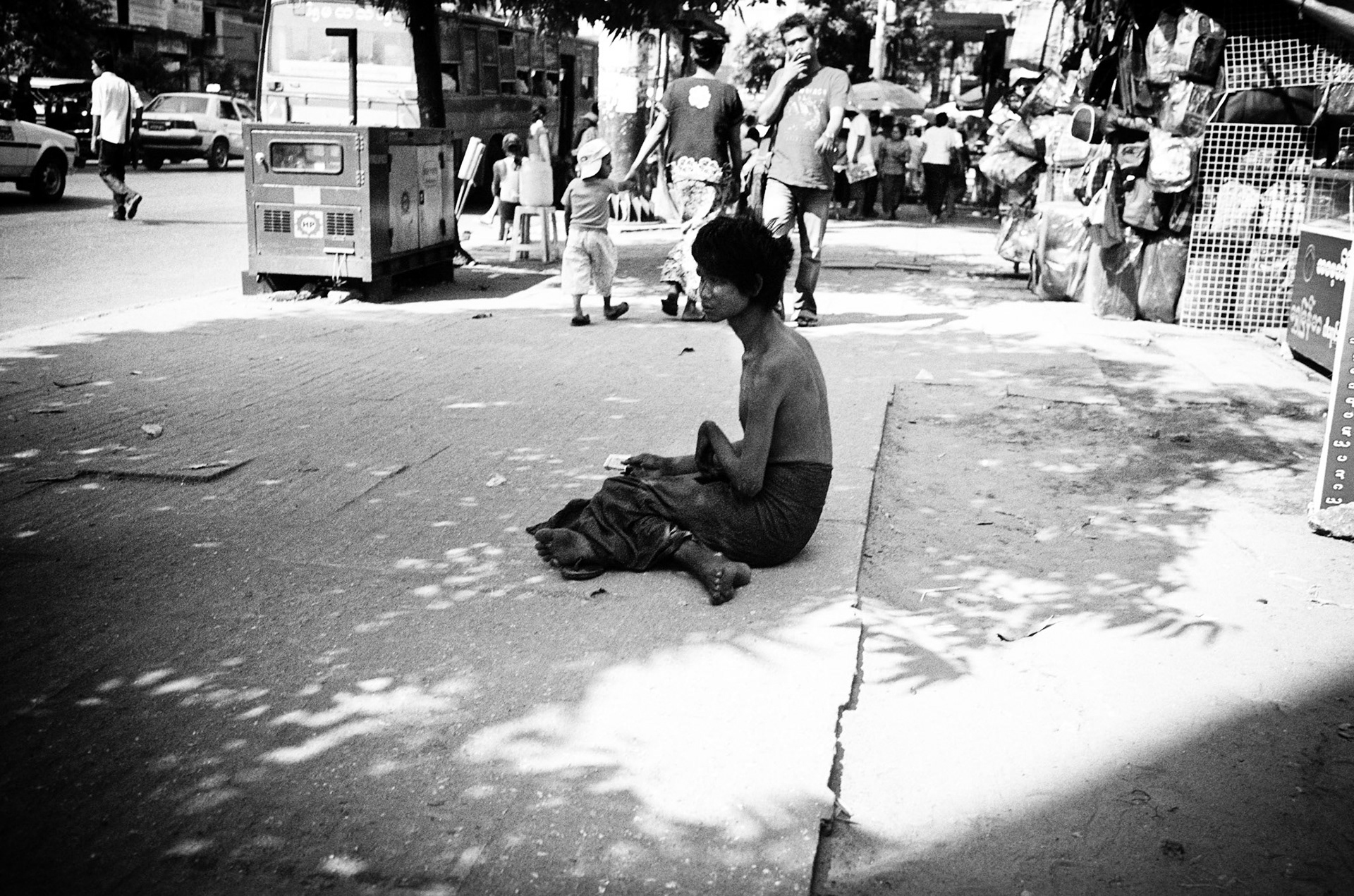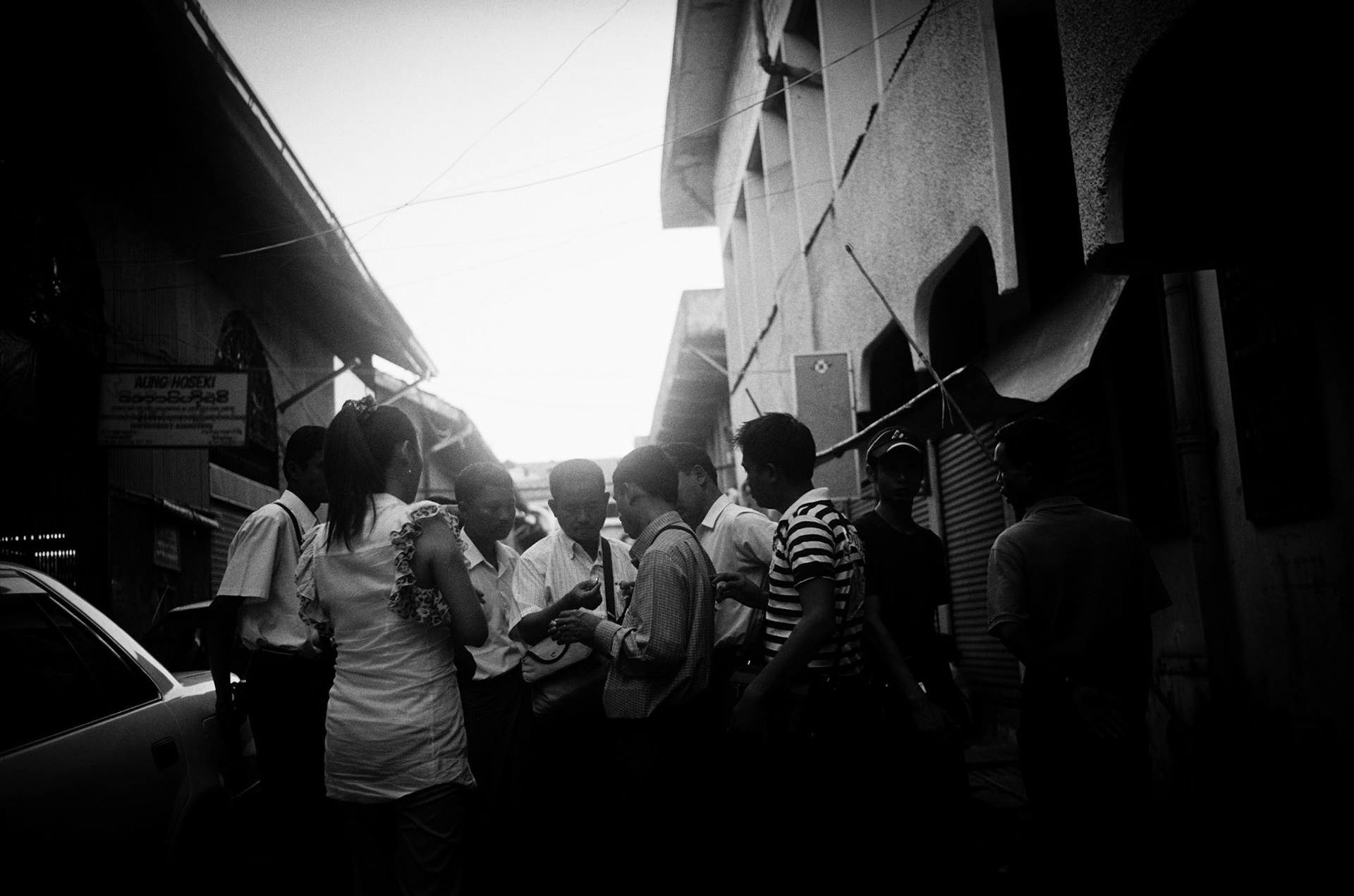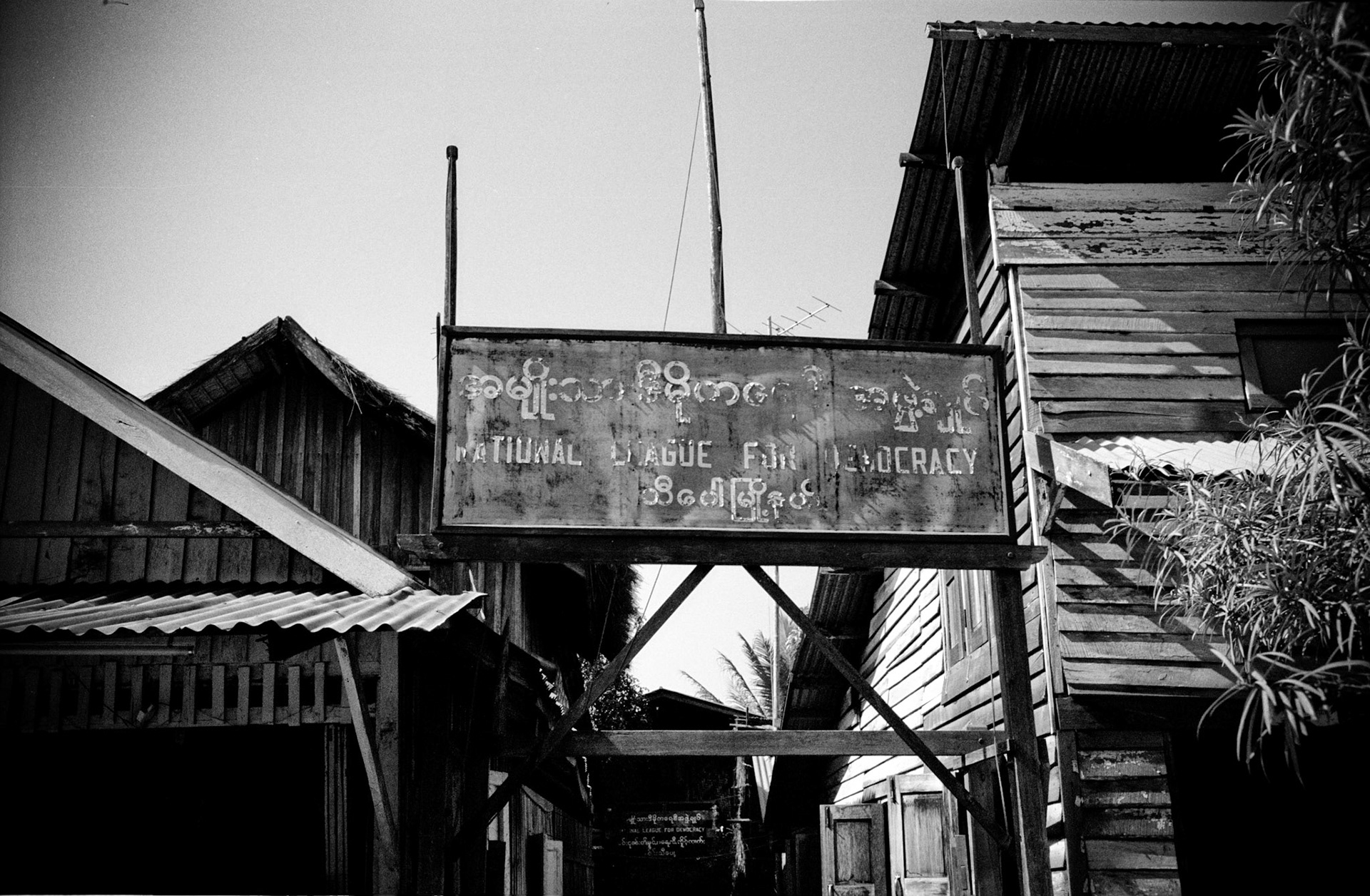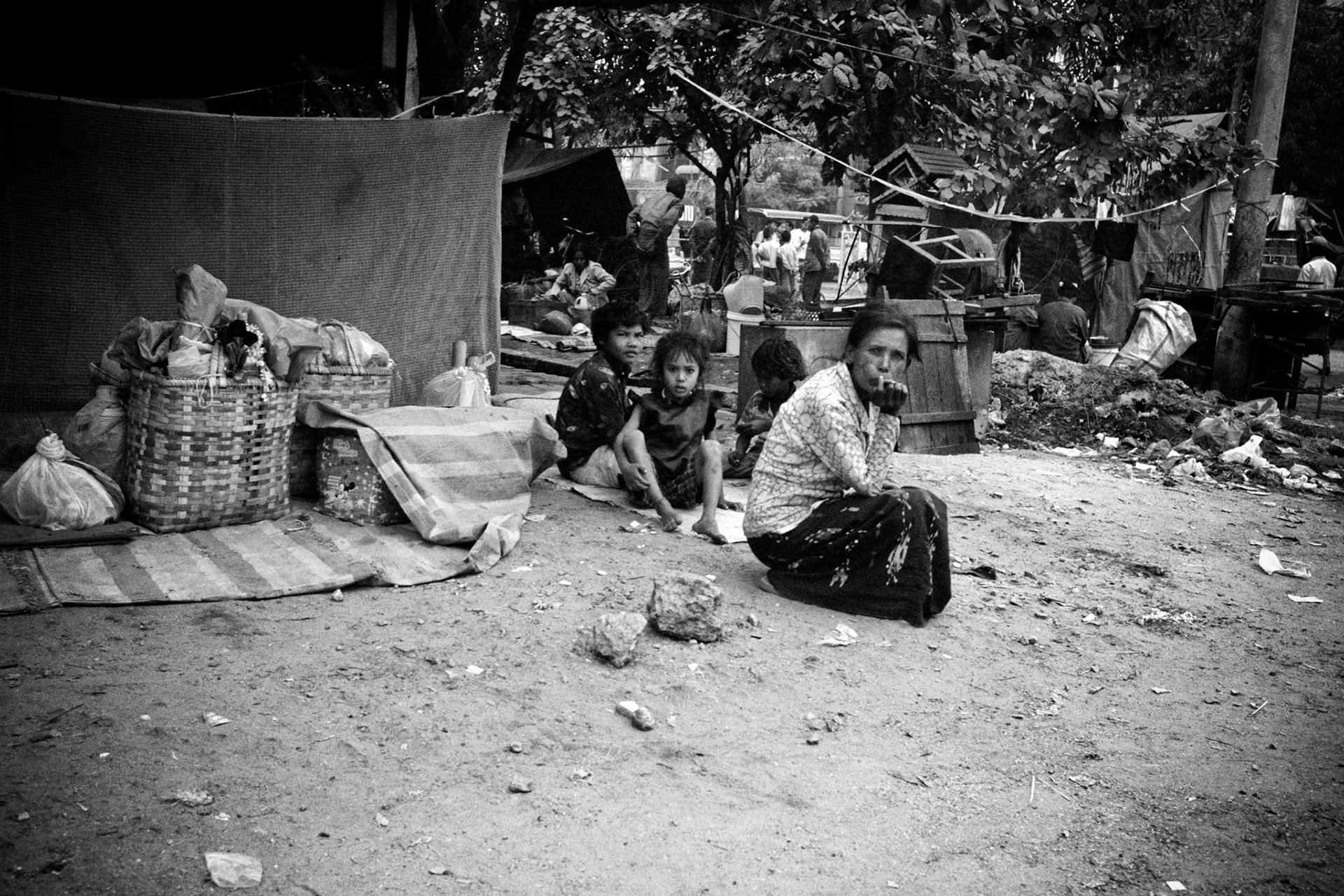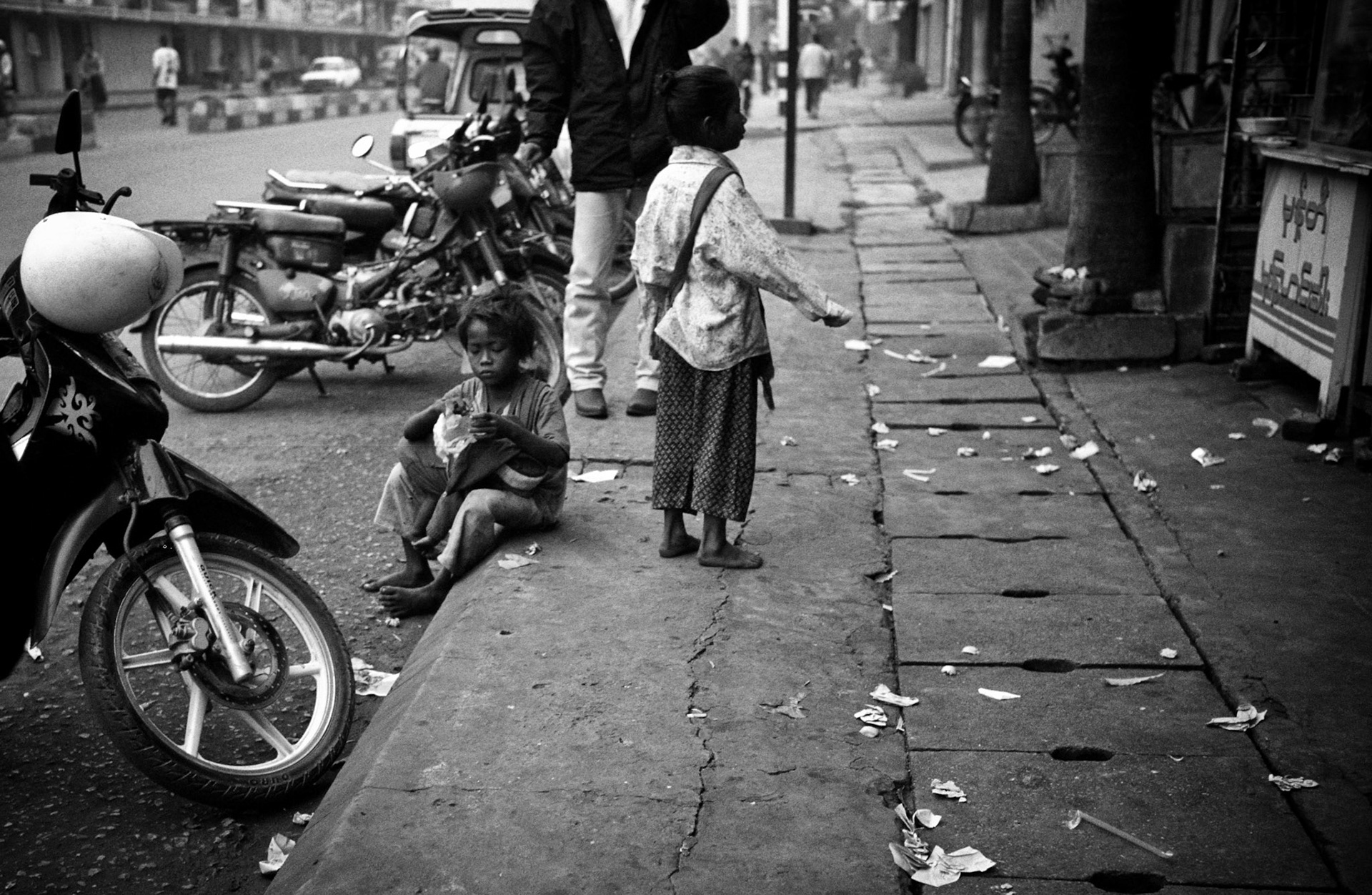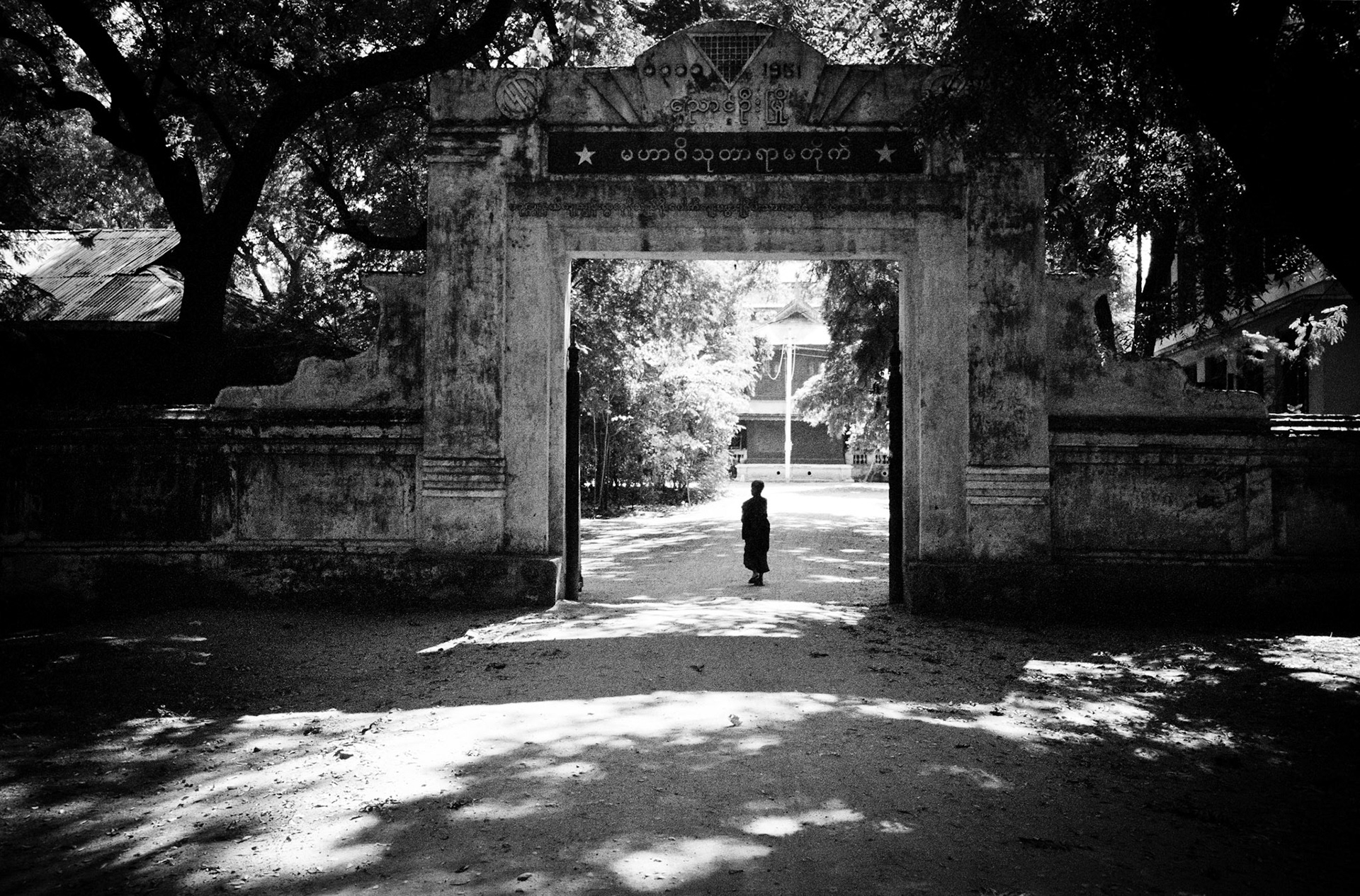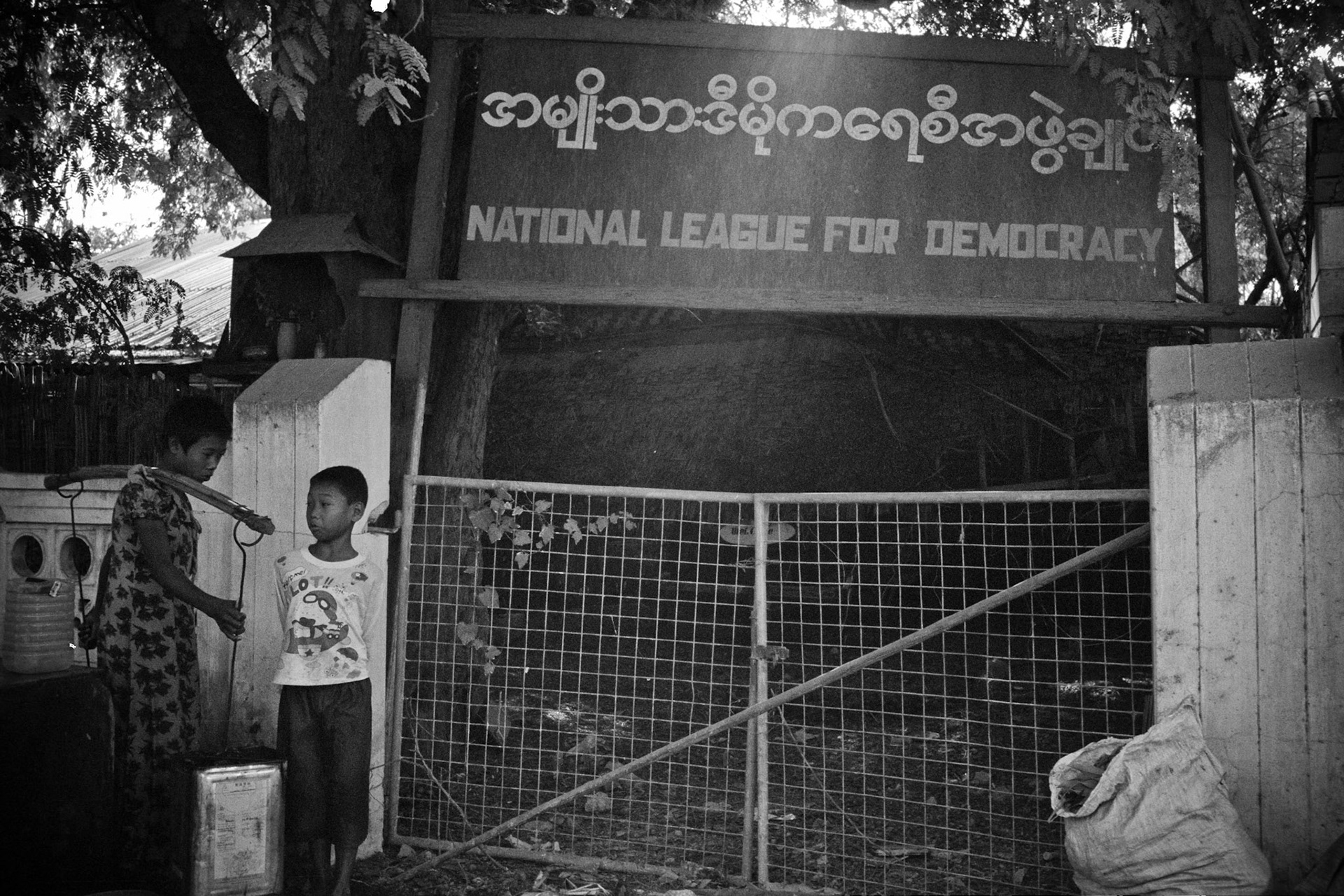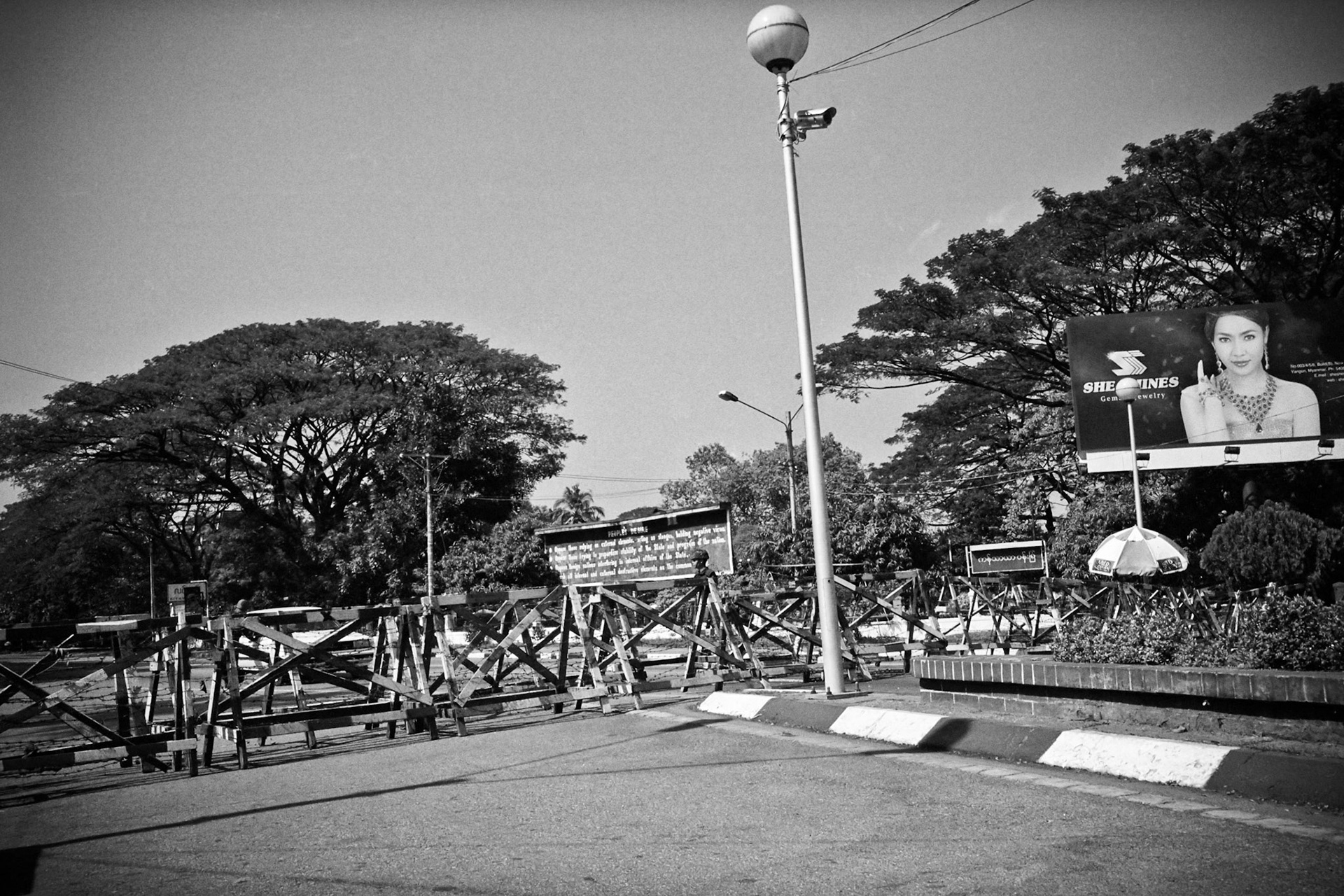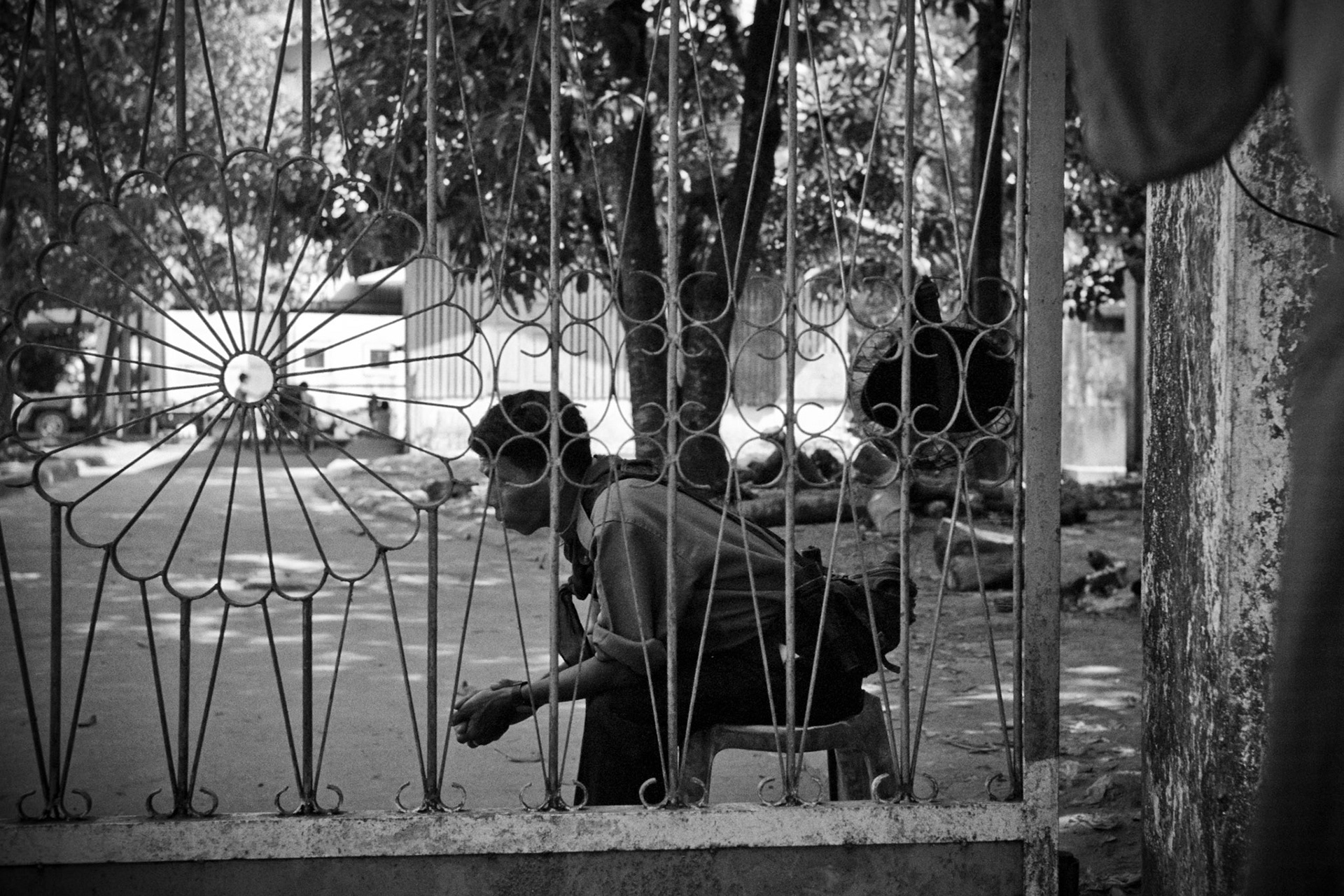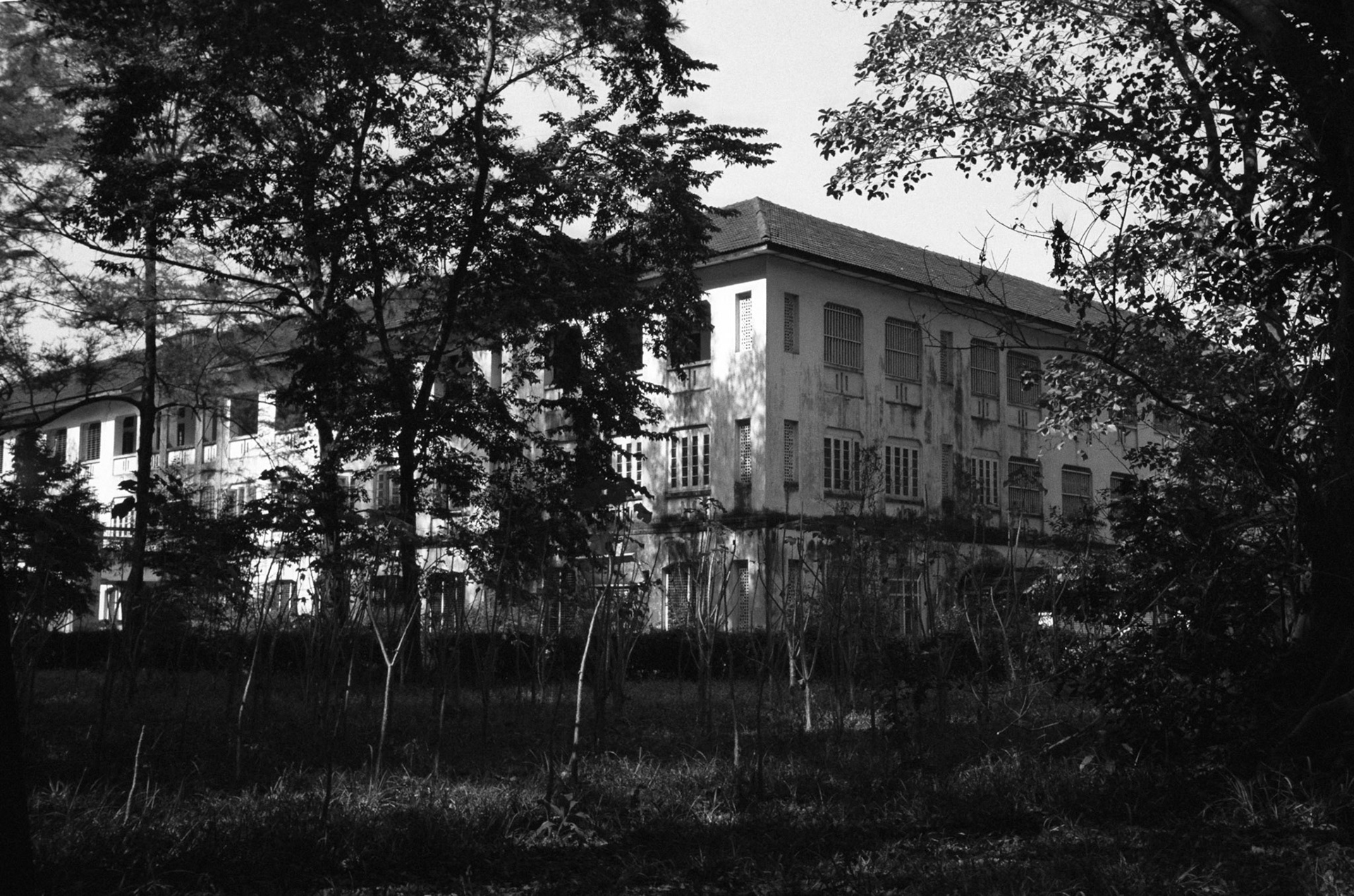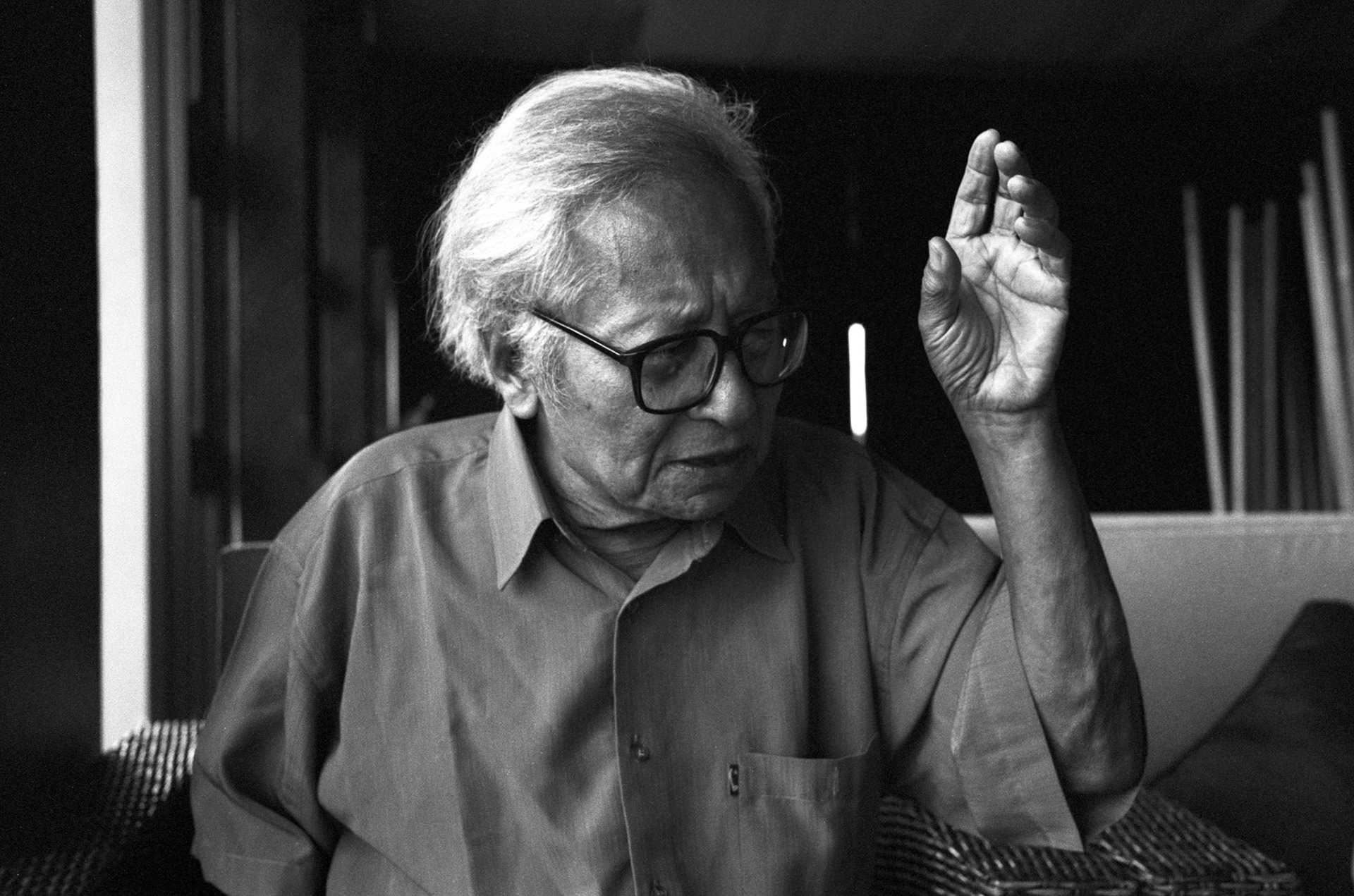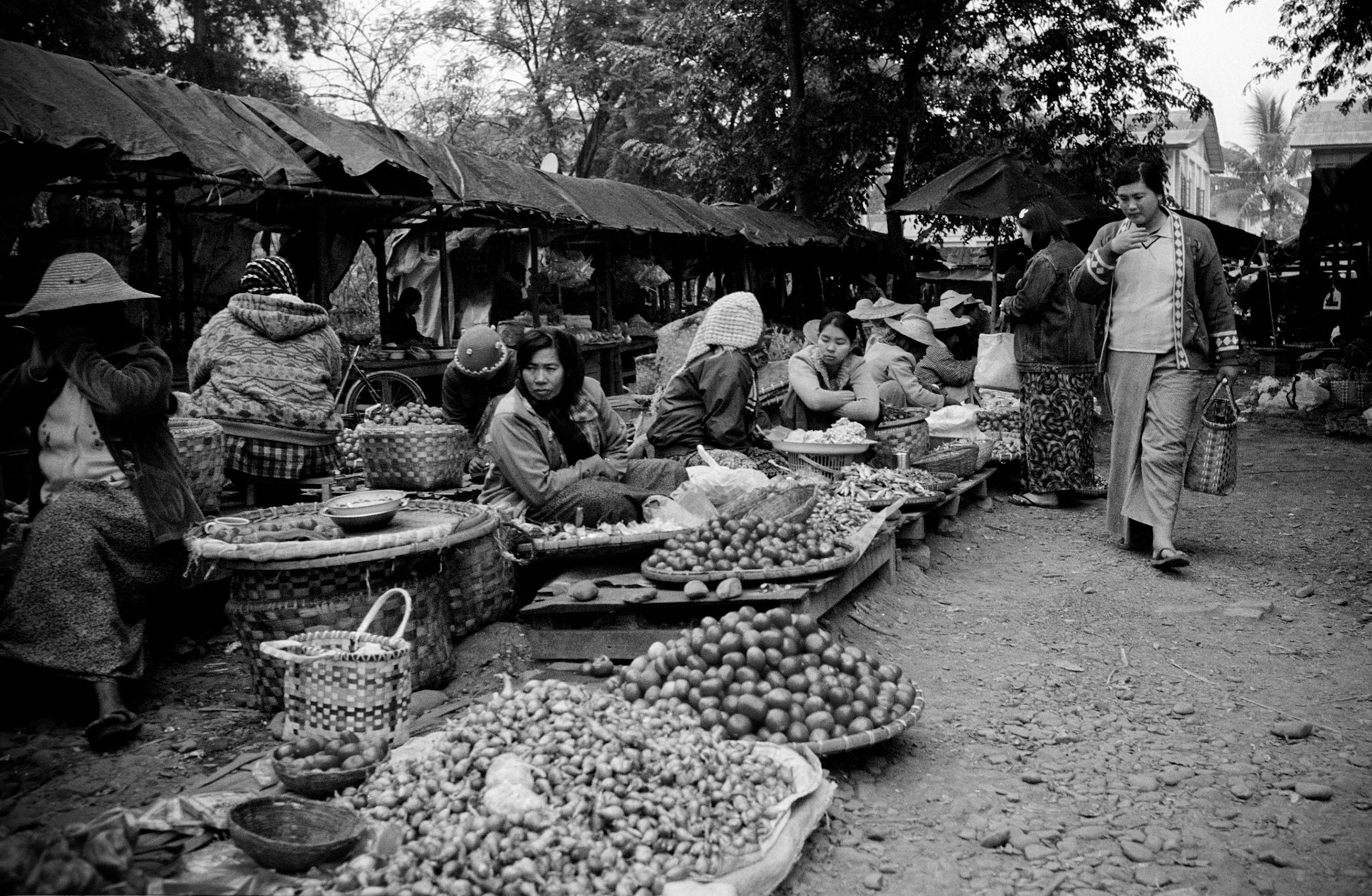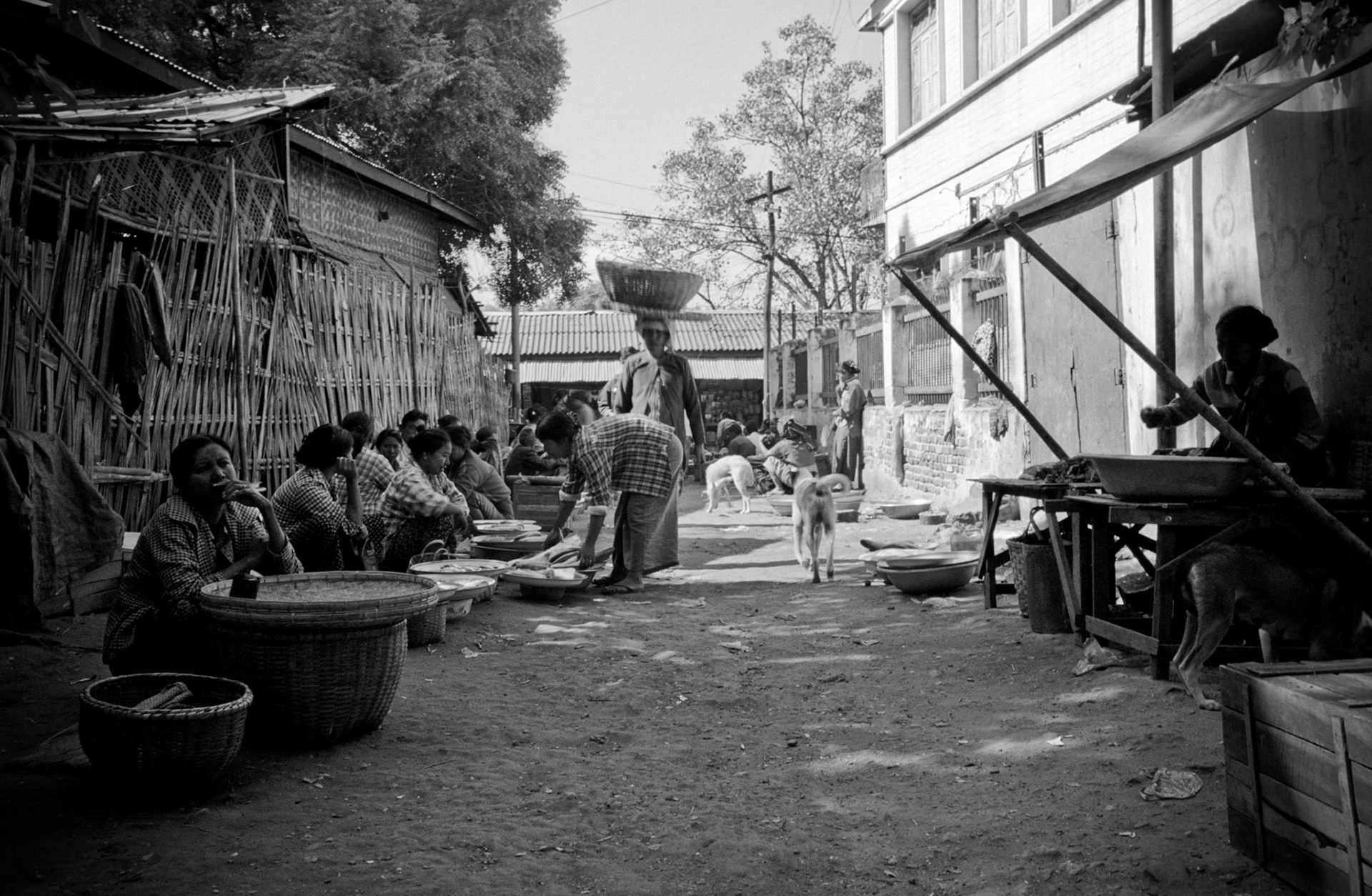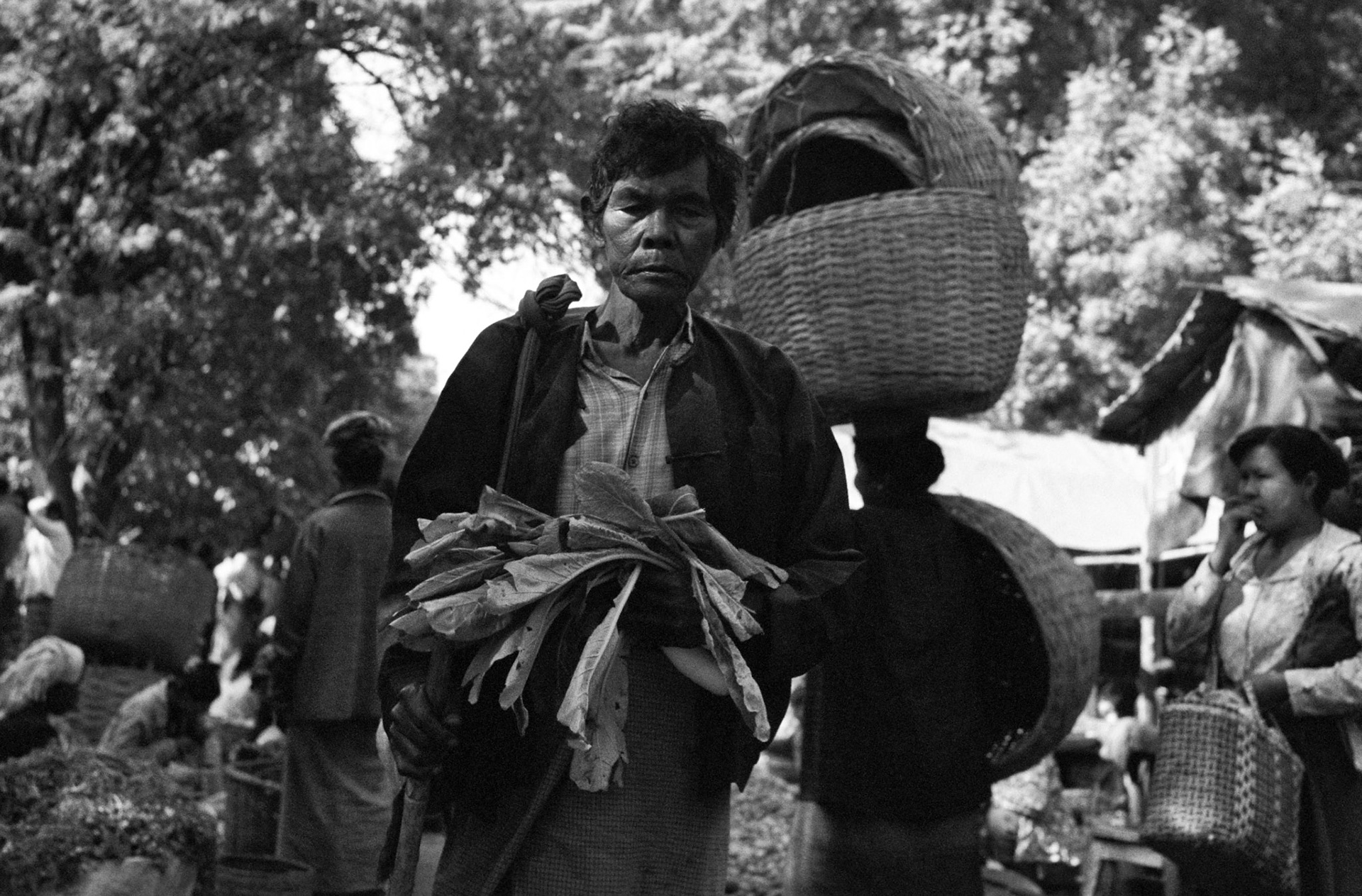
Since 1962 when the Ne Win government seized power in a military coup, Burma has been under the vice like grip of successive regimes that have ruled the country through oppression and fear

Bagan, the ancient city of Burma where the ruins of more than 4,000 temples and pagodas spread out over its 16 square mile plains. The majority of its buildings were built in the 1000s to 1200s, during the time when Bagan was the capital of the first Burmese Empire.

A soldier from the Burmese army takes a break during a routine patrol through a monastery in Central Burma.

A young homeless boy carrying his younger brother begs on the streets of Mandalay. Burma, a resource rich nation, has become one of the poorest in the world with estimated more than 30% of the population living on or below the poverty line and where the ruling military regime spend less than 2% of GDP on education and healthcare combined.

Mandalay is the second-largest city and the last royal capital of Myanmar (Burma). It is the economic hub of Upper Burma and considered the center of Burmese culture.

Forced labour on a road in upper Burma as local villagers are used by the military to carry out tasks including rebuilding roads and infrastructure fo no pay or reward

The offices of the National League for Democracy in Sagaing. Burma's opposition party lead by Aung San Suu Kyi won the general election in 1990 but were never allowed to assume power by the ruling military regime. Since then offices across the country have remained closed for long periods of time as political oppression of all opposition continues

An old woman and her grand-daughter beg on the street sof Monywa. Burma, a resource rich nation, has become one of the poorest in the world with estimated more than 30% of the population living on or below the poverty line and where the ruling military regime spend less than 2% of GDP on education and healthcare combined.

Street traders in downtown Rangoon struggle to survive in the poverty stricken country. Burma has become one of the poorest in the world with estimated more than 30% of the population living on or below the poverty line

Resistance Park in Rangoon, Burma, is a former parade ground used by the military regime to mark Armed Forces Day and other military events with military parades. The park, guarded by soldiers, is closed to all visitors as the military regime have moved to a new capital city, Naypidaw

Policemen wait outside a teashop in downtown Rangoon whilst intelligence offiers search inside

Military Intelligence officer (in dark glasses) watches closely on a bus in Rangoon. The Burmese authorities keep a strict control on the public, allowing no form of dissent to their authoritarian rule.

A shop in downtown Rangoon doubles up offering a public telephone line. Electricity and communication services are often scarce in Burma

Downtown Rangoon, the former capital city of Burma. With a population of over four million, continues to be the country's largest city and the most important commercial center. It has more colonial buildings that anywhere else in South East Asia.

Burma, a resource rich nation, has become one of the poorest in the world with estimated more than 30% of the population living on or below the poverty line and where the ruling military regime spend less than 2% of GDP on education and healthcare combined.

Young members of Burma's riot police sit in a tea shop in downtown Rangoon. The Burmese authorities keep a strict control on the public, allowing no form of dissent to their authoritarian rule.

Daily life on the streets of Rangoon where vendors offer everything for sale from fresh food to bric-brac and discarded items. Burma, a resource rich nation, has become one of the poorest in the world with estimated more than 30% of the population living on or below the poverty line and where the ruling military regime spend less than 2% of GDP on education and healthcare combined.

Daily life on the streets of Rangoon where vendors offer everything for sale from fresh food to bric-brac and discarded items. Burma, a resource rich nation, has become one of the poorest in the world with estimated more than 30% of the population living on or below the poverty line and where the ruling military regime spend less than 2% of GDP on education and healthcare combined.

Military Intelligence officers and riot police outside a monastery that was raided during the monk led Saffron Revolution a month earlier and is now under the control of the authorities

Resistance Park in Rangoon, Burma, is a former parade ground used by the military regime to mark Armed Forces Day and other military events with military parades. The park, guarded by soldiers, is closed to all visitors as the military regime have moved to a new capital city, Naypidaw

The main entrance to Insein prison in Rangoon, Burma. The prison is notorious worldwide for its inhumane and dirty conditions, abusive techniques, and uses of mental and physical torture. It is used largely to repress political dissidents and one of it's most famous prisoners has been Aung San Suu Kyi who has been jailed there on 3 seperate occasions.

The former site of the Rangoon Student Union building that was dynamited by General Ne Win in 1962. It later became the burial ground for Burmese prime minister and hero to the student movement and his memorial (centre left) is all that remains in the empty field next to Rangoon University

The banks of Inya Lake in Rangoon, Burma, at the site of the infamous 'white bridge' incident where a number of student demonstrators were killed by the military authorities in March 1988 whilst protesting against military rule.

Police trucks lined up outside city Hall in Rangoon. The authorities keep a strict control on public life in Burma, tolerating no form of opposition or dissent

City Hall in Rangoon, former capital city of Burma, is as famous for its Burmese architecture as it is as a focal point for demonstrations and protests that have occured throughout history. With a population of over four million, Rangoon continues to be the country's largest city and the most important commercial center

Ngwe Kyar Yan monastery in South Okkalapa township in Rangoon still lies empty just months after it was raided during the monk led Saffron Revolution

Restricted military area in Rangoon

Buddha image at the famed Shwedagon Pagoda in Rangoon. Officially titled Shwedagon Zedi Daw and also known as the Golden Pagoda, it is a 98-metre gilded stupa and is the most significant and important Buddhist pagoda in Burma where everyday, monks, nuns, novices and hundreds of Burmese come to make offerings and pray

A soldier from the Burmese army stands on watch in downtown Rangoon

The Shwedagon Pagoda, Shwedagon Paya, in Rangoon, Burma, officially titled Shwedagon Zedi Daw and also known as the Golden Pagoda, is a 98-metre gilded stupa. It is the most significant and important Buddhist pagoda in Burma where everyday, monks, nuns, novices and hundreds of Burmese come to make offerings and pray

The Shwedagon Pagoda, Shwedagon Paya, in Rangoon, Burma, officially titled Shwedagon Zedi Daw and also known as the Golden Pagoda, is a 98-metre gilded stupa. It is the most significant and important Buddhist pagoda in Burma where everyday, monks, nuns, novices and hundreds of Burmese come to make offerings and pray

Rangoon (Yangon) former capital city of Burma (Myanmar). With a population of over four million, continues to be the country's largest city and the most important commercial center. It has more colonial buildings that anywhere else in South East Asia.

Across Inya Lake lies 54 University Avenue in Rangoon Burma where democracy icon Aung San Suu Kyi has been kept under house arrest at her home for more than 15 years

Second hand and discarded items for sale on the streets of Rangoon. Burma, a resource rich nation, has become one of the poorest in the world with estimated more than 30% of the population living on or below the poverty line and where the ruling military regime spend less than 2% of GDP on education and healthcare combined.

Riot police on duty in downtown Rangoon

Burma's new President, Thein Sein, on the cover of a local newspaper in Rangoon. The Burmese authorities impose strict censorship laws restricting news and foreign media, whilst newspapers normally carry government propaganda and photos of the ruling Generals.

Traders prepare and deal in Burmese jade at Bogyoke Aung San market in Rangoon. Burmese jade is the most precious and the finest quality in the world. Whilst Western sanctions prohibit trade and import, it is a lucrative business for Asian countries, in particular Chinese dealers and brings in millions of dollars in revenue to the military regime

Bogyoke Aung San Market, founded in 1926, is the most popular market of Rangoon and a major tourist attraction with shops selling gold, gems, jewelery and traditional clothing. Formerly known as Scott Market it is named after Burma's independence hero General Aung San.

Riot police on duty in downtown Rangoon

Daily life on the streets of Rangoon where vendors offer everything for sale from fresh food to bric-brac and discarded items. Burma, a resource rich nation, has become one of the poorest in the world with estimated more than 30% of the population living on or below the poverty line and where the ruling military regime spend less than 2% of GDP on education and healthcare combined.

A young handicapped boy forced to beg on the streets of Rangoon. Burma, a resource rich nation, has become one of the poorest in the world with estimated more than 30% of the population living on or below the poverty line and where the ruling military regime spend less than 2% of GDP on education and healthcare combined.

Traders prepare and deal in Burmese jade at Bogyoke Aung San market in Rangoon. Burmese jade is the most precious and the finest quality in the world. Whilst Western sanctions prohibit trade and import, it is a lucrative business for Asian countries, in particular Chinese dealers and brings in millions of dollars in revenue to the military regime

The offices of the National League for Democracy in Hsipaw. Burma's opposition party lead by Aung San Suu Kyi won the general election in 1990 but were never allowed to assume power by the ruling military regime. Since then offices across the country have remained closed for long periods of time as political oppression of all opposition continues

Homeless families living on the streets in Burma. Once a resource rich nation, Burma has become one of the poorest in the world with estimated more than 30% of the population living on or below the poverty line and where the ruling military regime spend less than 2% of GDP on education and healthcare combined.

Young homeless children beg on the streets of Mandalay. Burma, a resource rich nation, has become one of the poorest in the world with estimated more than 30% of the population living on or below the poverty line and where the ruling military regime spend less than 2% of GDP on education and healthcare combined.

A novice monk stands at the entrance to his monastery in Bagan, the ancient city of Burma where the ruins of more than 4,000 temples and pagodas spread out over its 16 square mile plains.

The offices of the National League for Democracy in Bagan. Burma's opposition party lead by Aung San Suu Kyi won the general election in 1990 but were never allowed to assume power by the ruling military regime. Since then offices across the country have remained closed for long periods of time as political oppression of all opposition continues

Soldiers keep watch behind blockades on University Avenue, Rangoon, Burma. Since 1989 when Aung San Suu Kyi was first arrested, Burma's military regime have erected the rudimentary blockades to keep people away from her home.

Monasteries throughout Rangoon were raided with hundreds of monks rounded up and detained. The army then used the monasteries as there base and now some three months later many monasteries remain under the control of the military.

Rangoon University, located on the banks of Inya Lake, is the oldest and most famous University in Burma. It has been at the centre of civil discontent throughout it's history with student protests in 1962, 1974, 1988 and 1996. Since the uprising of 1996, it no longer offers any full-time undergraduate programs. In addition, the authorities no longer allow undergraduate students on campus.

U Win Tin, Burma's most prominent former political prisoner, right hand man to Aung San Suu Kyi and founding member of the National League for Democracy (NLD). The veteran journalist, is one of Burma's foremost outspoken critics of the ruling military regime and despite having spent more than 19 years in Insein prison and faced with the constant danger of re-arrest, he continues to work tirelessly to promote democracy and human rights in Burma.

Daily market in Hsipaw (Thibaw), an ancient town in Shan State, Burma, is where last king of Burma took his name from

Street vendors at a morning market in central Burma

A homeless man shops for what food he can afford at the daily market. Once known as the 'rice-bowl' of Asia and despite being a natural resource rich nation, Burma has now become one of the poorest nations on earth due to chronic economic mismanagement by the ruling military regime.
